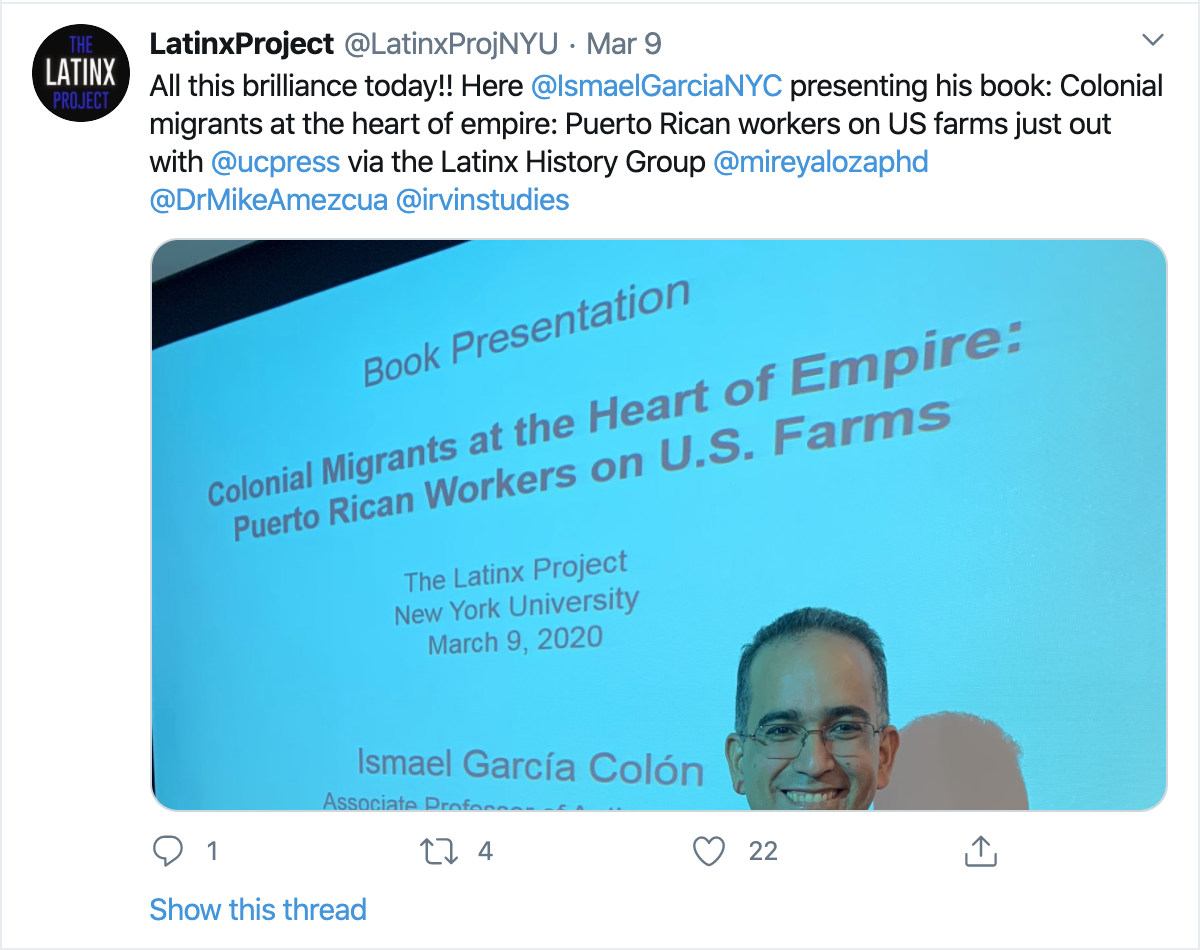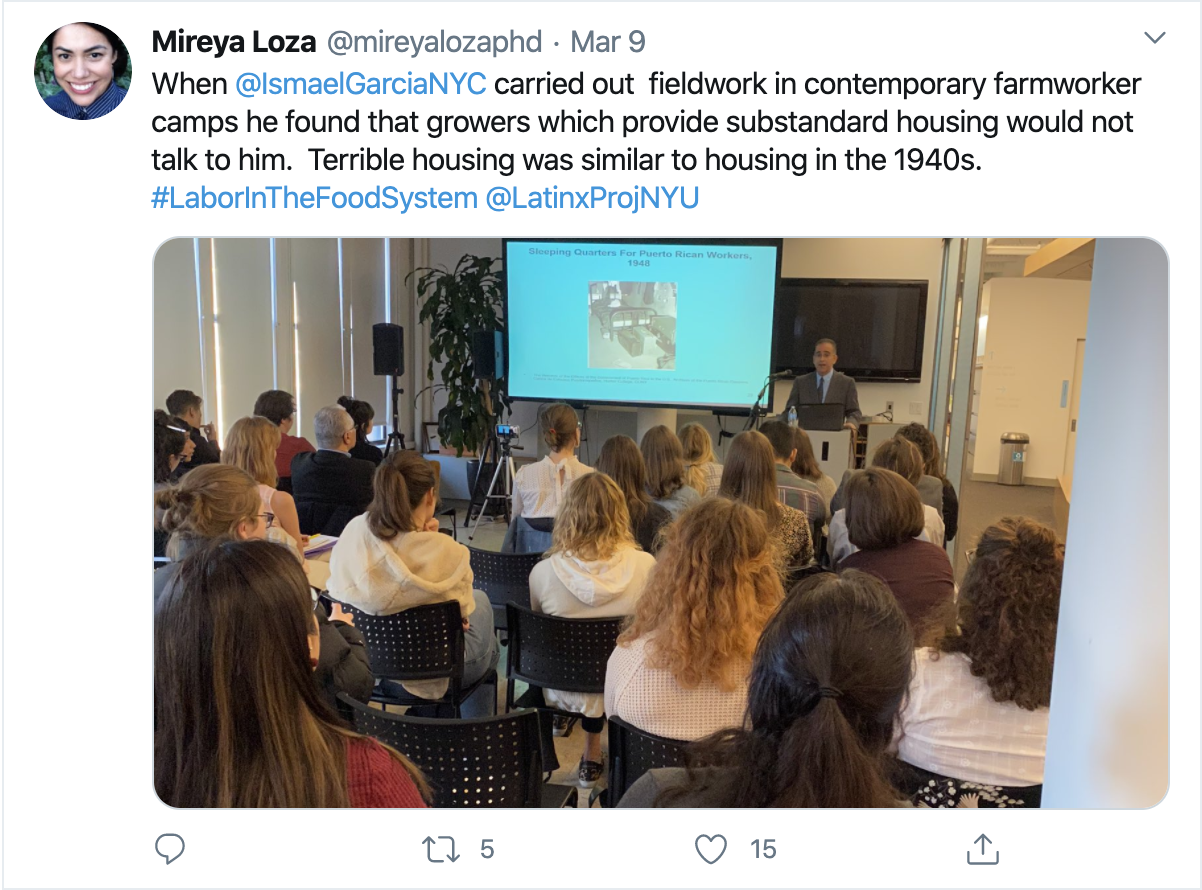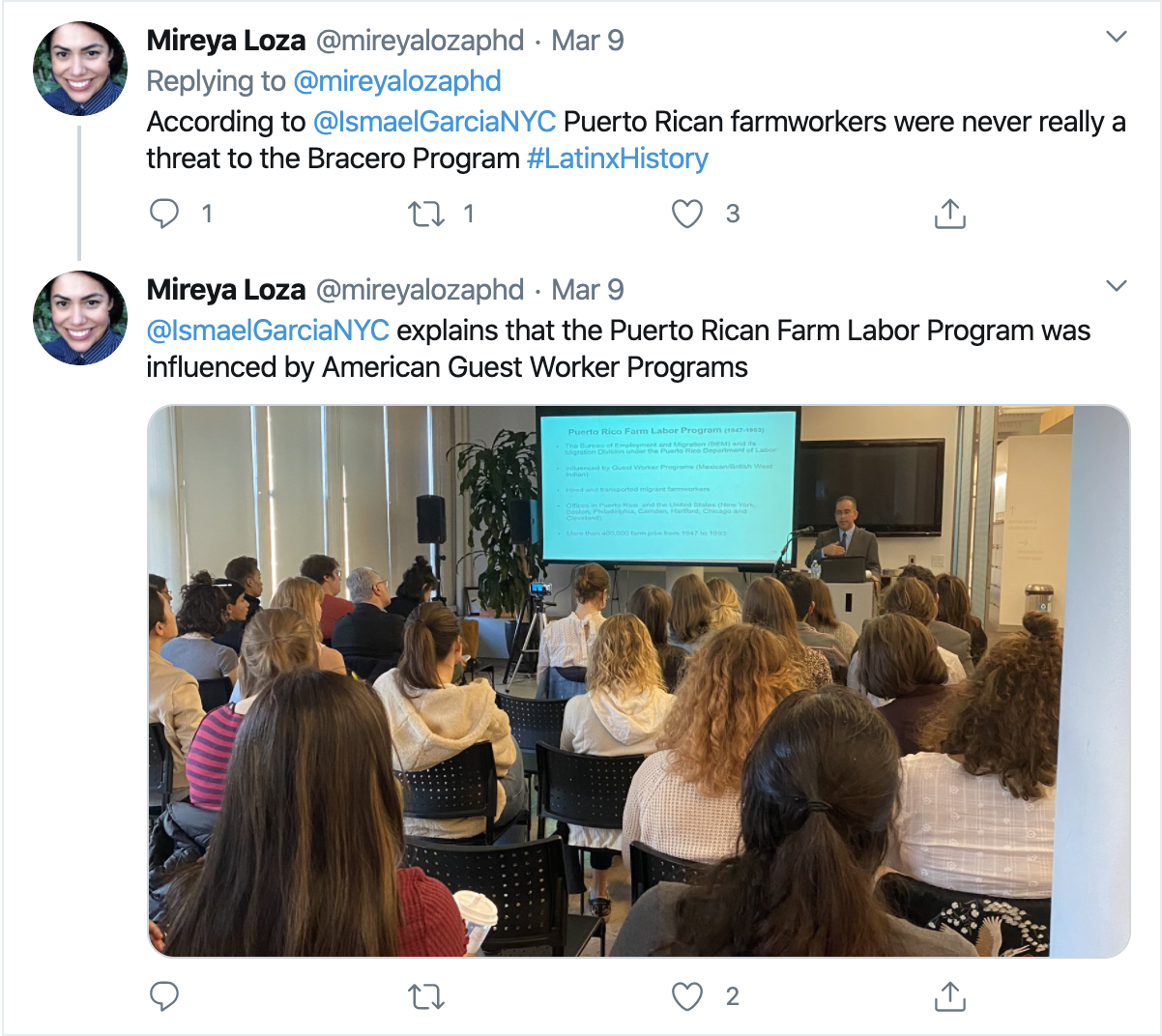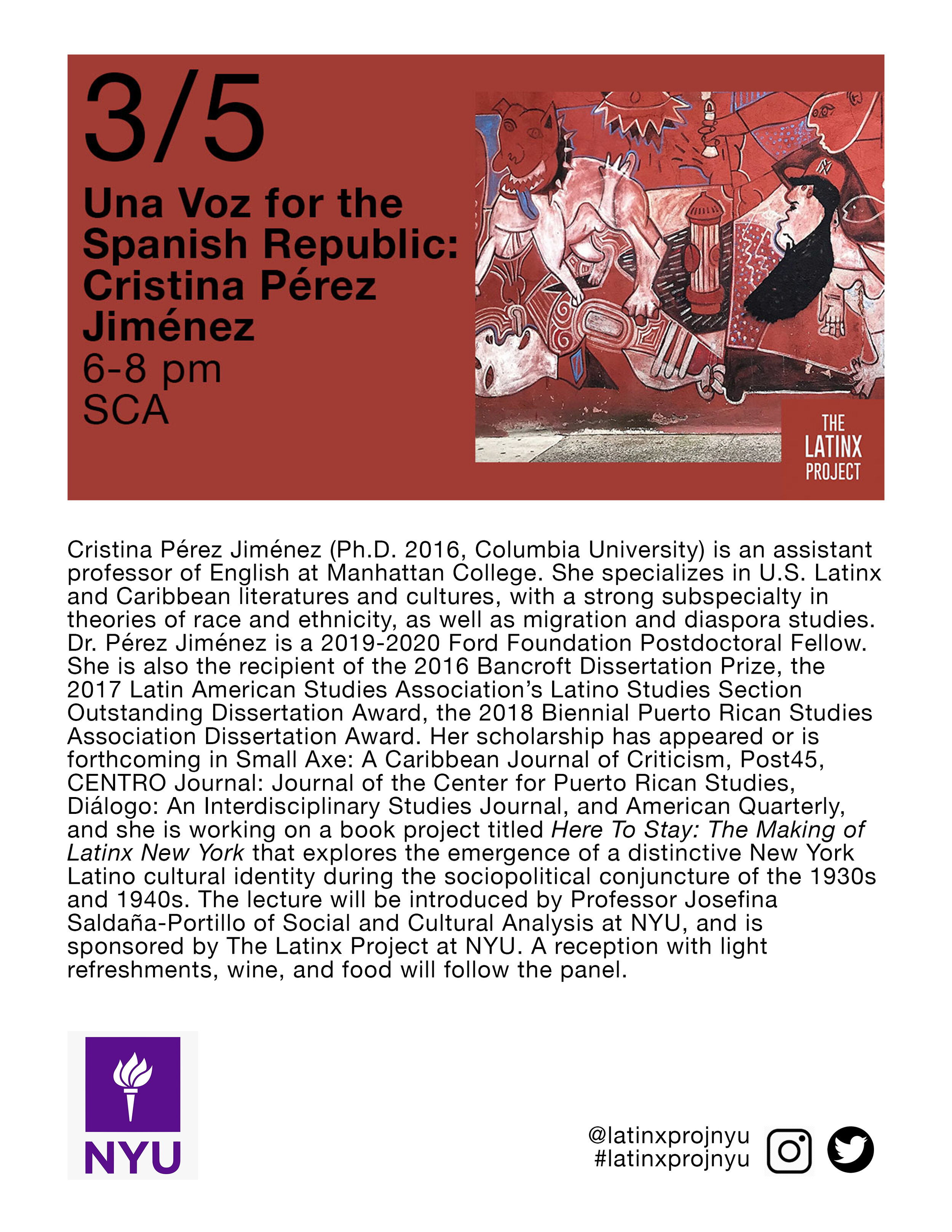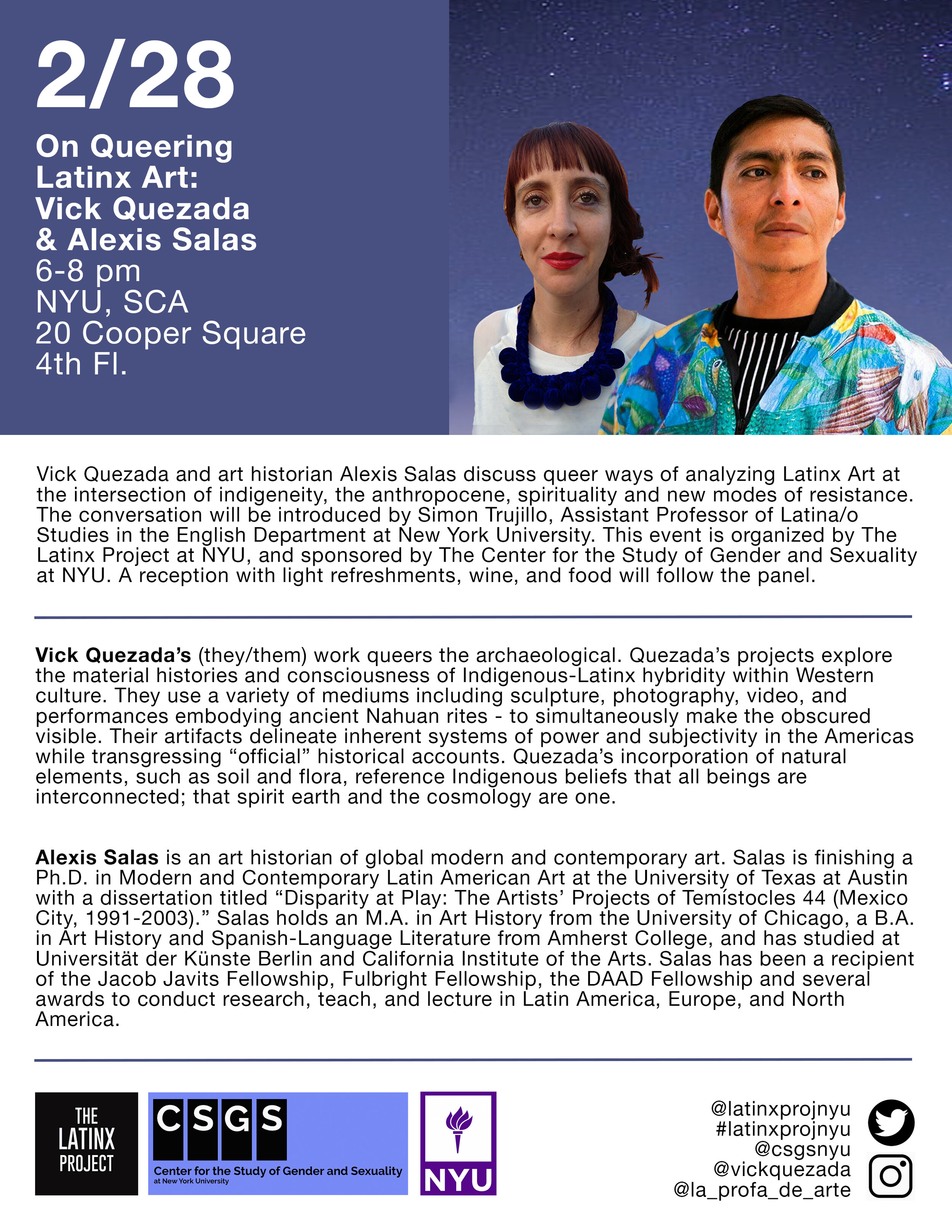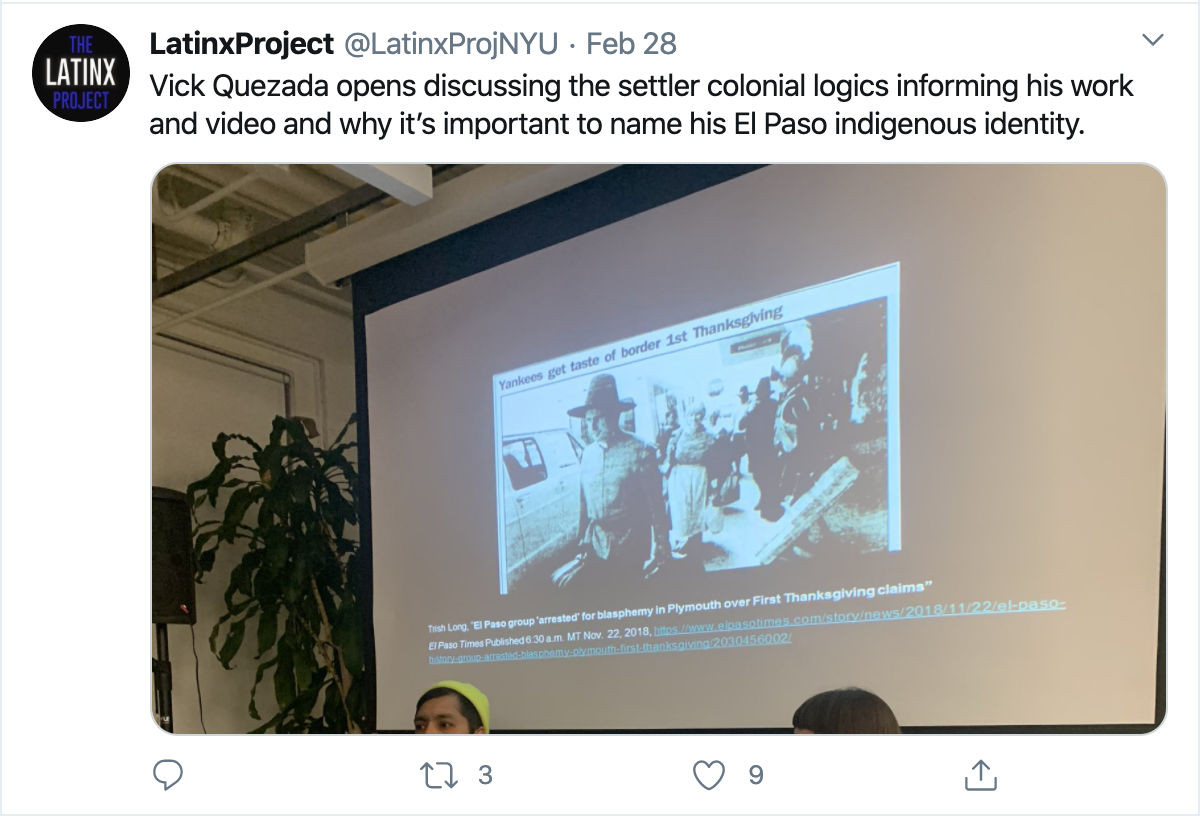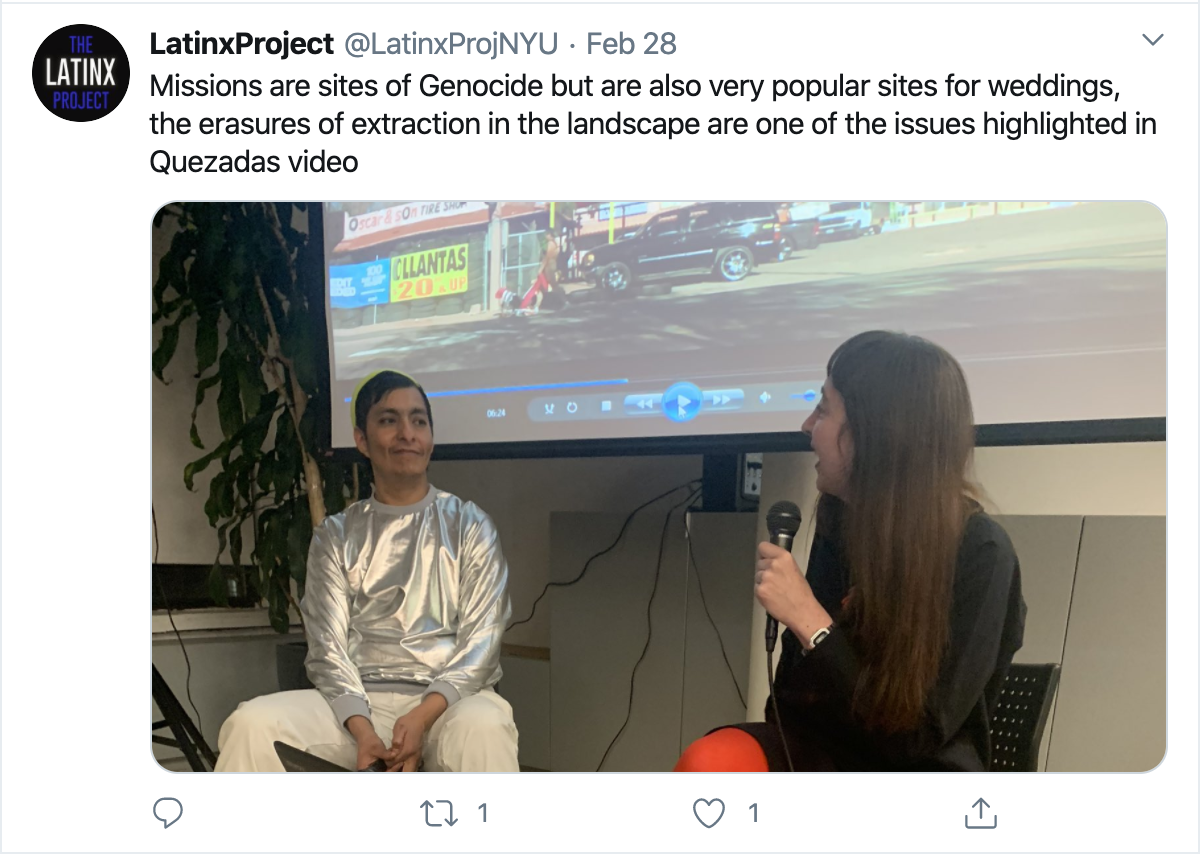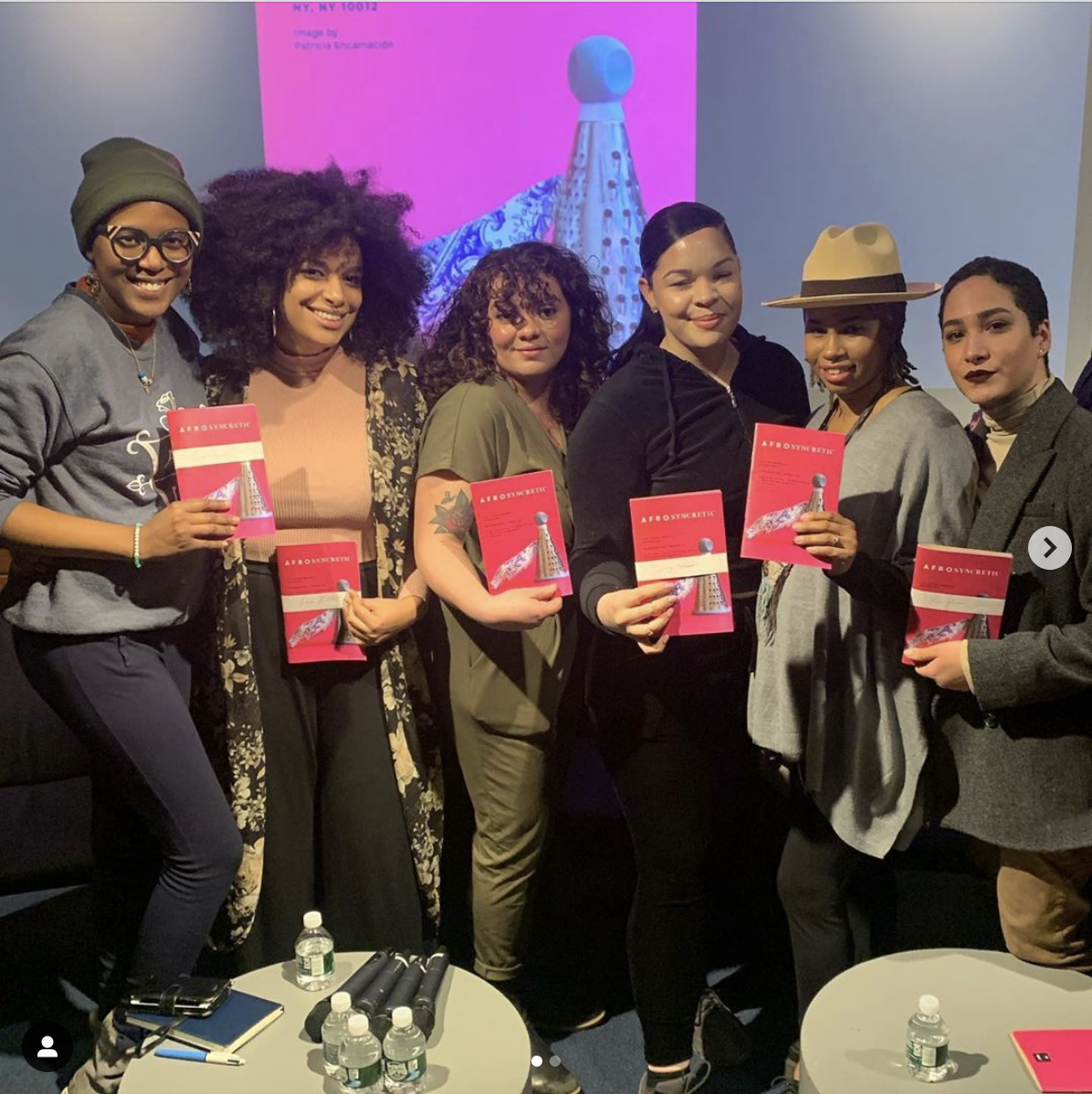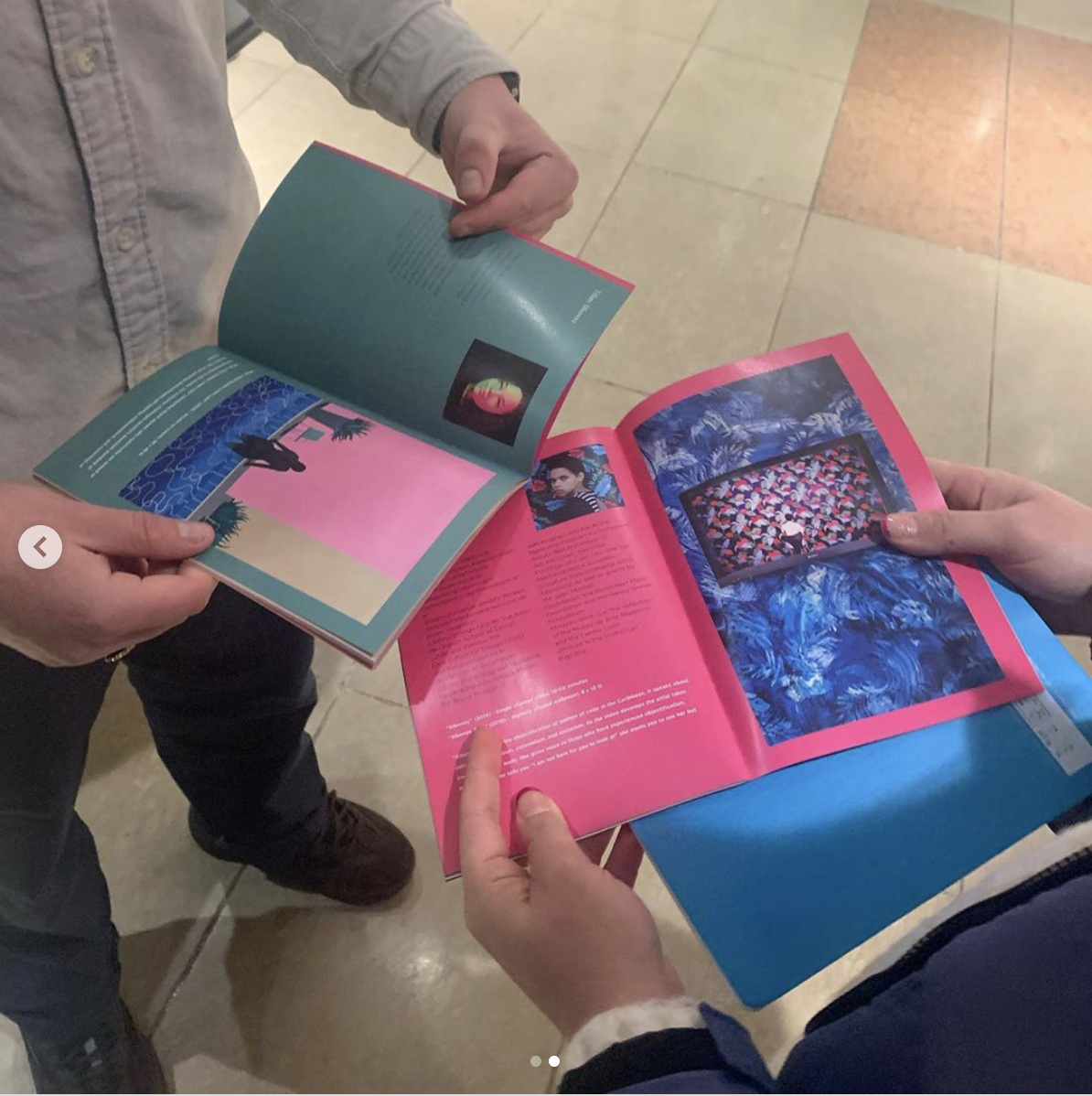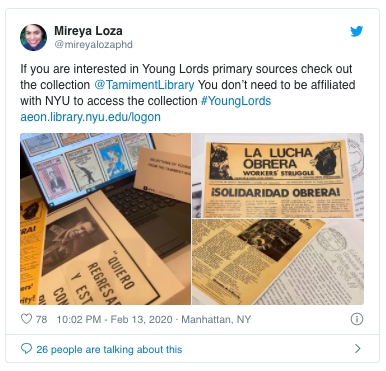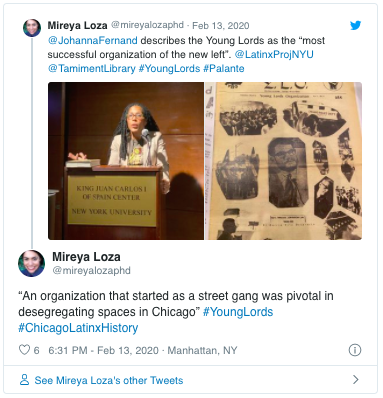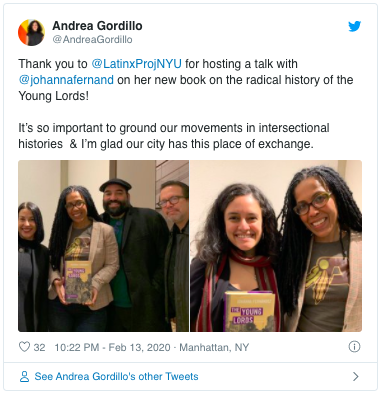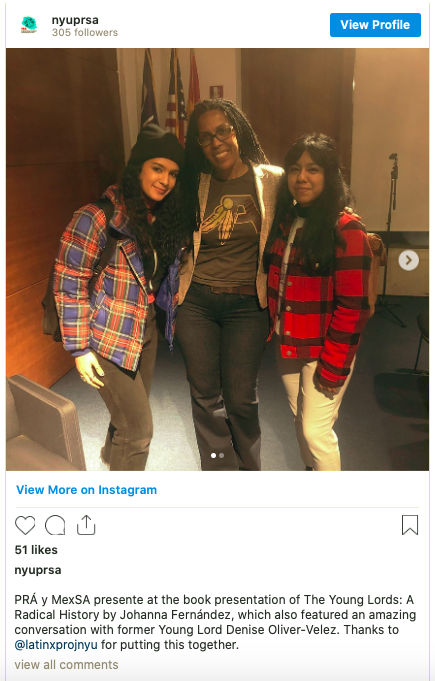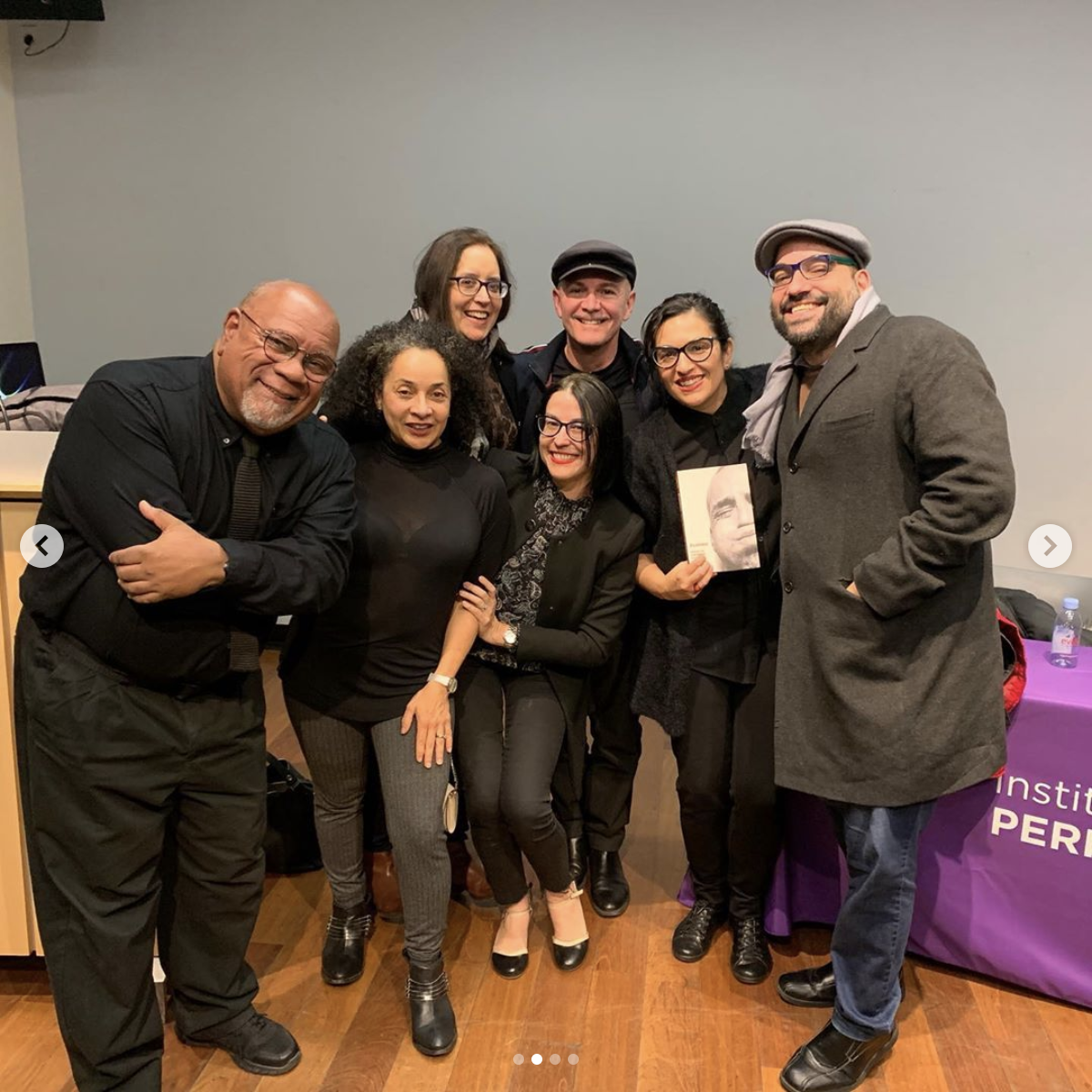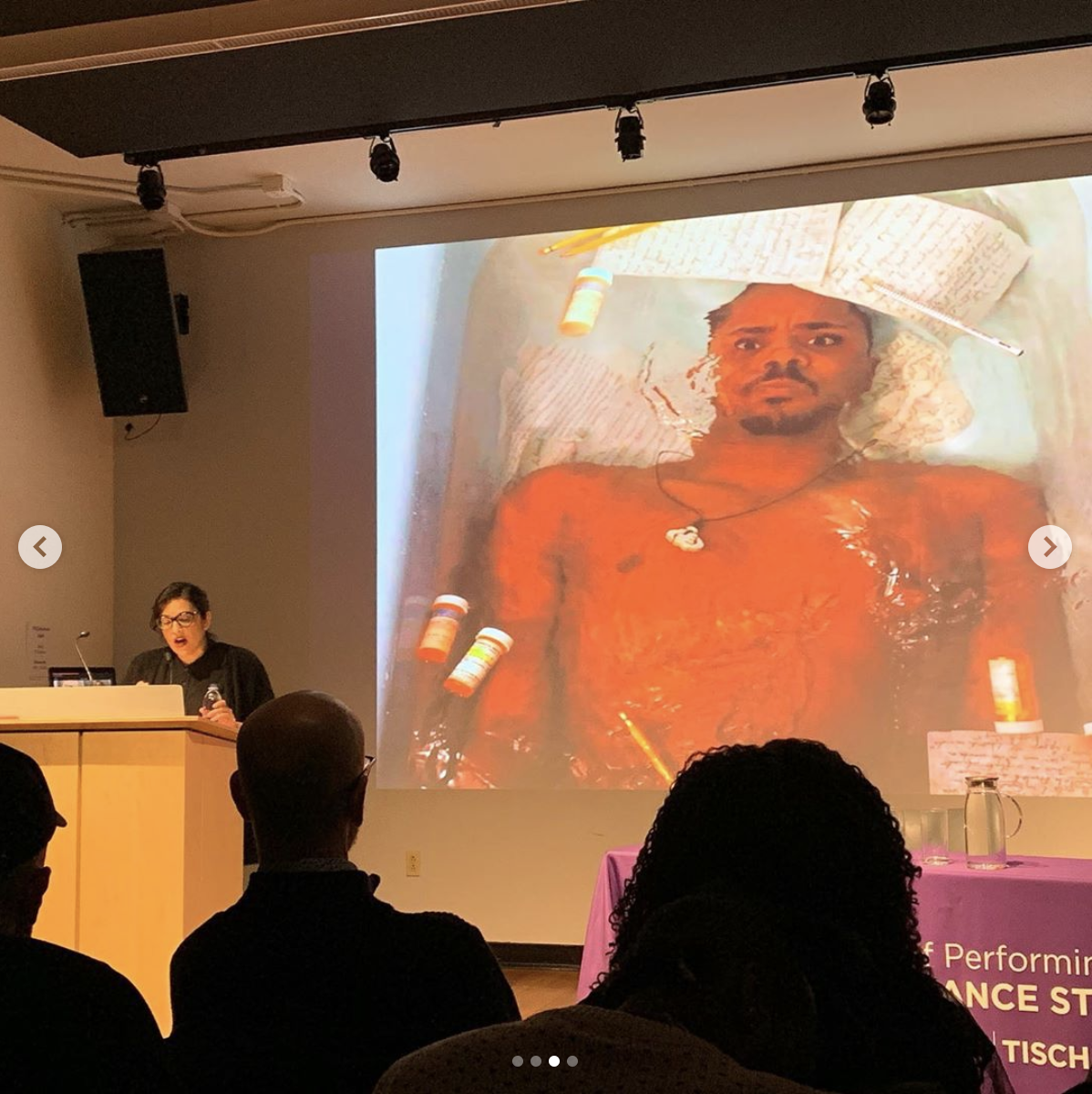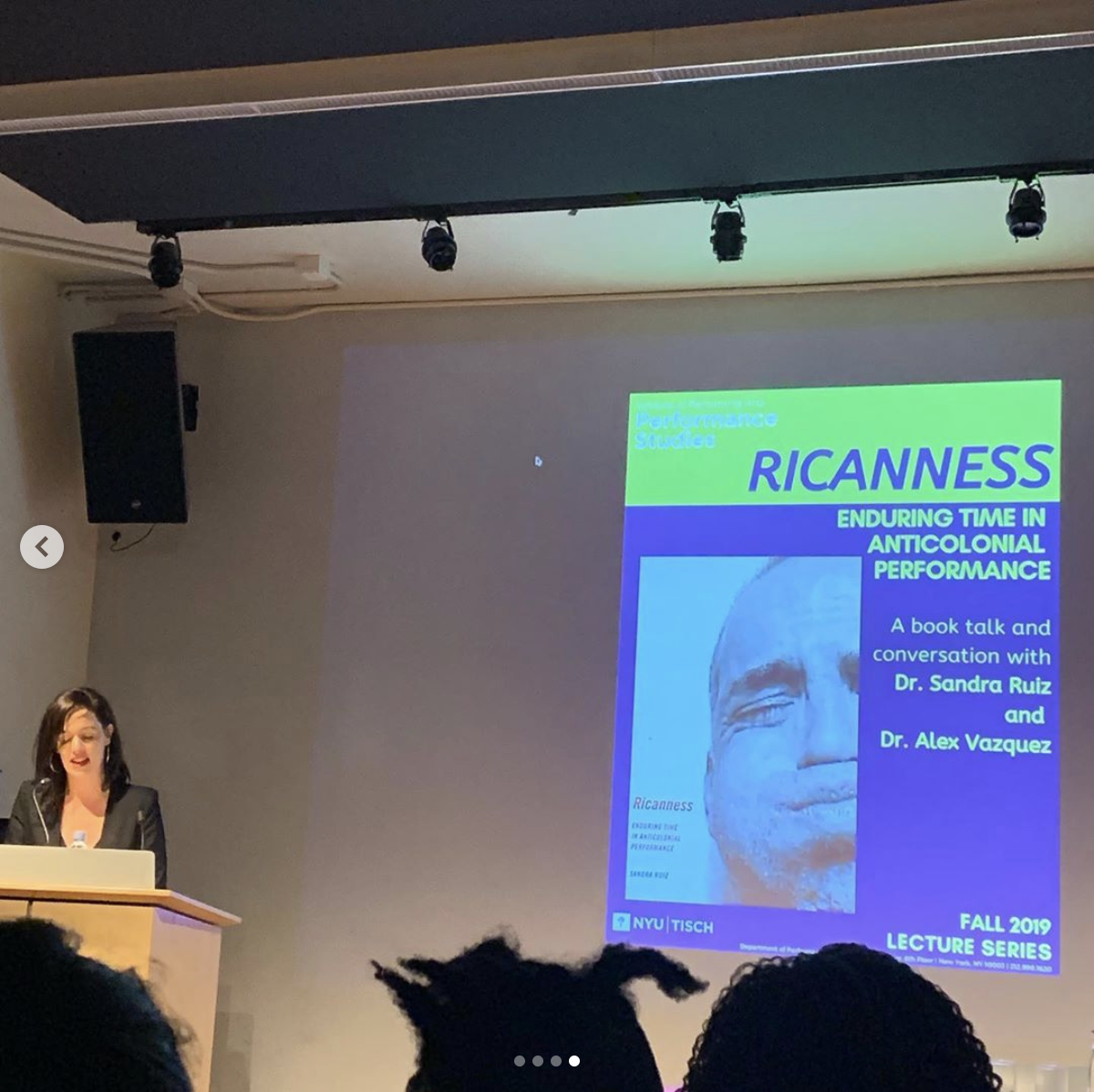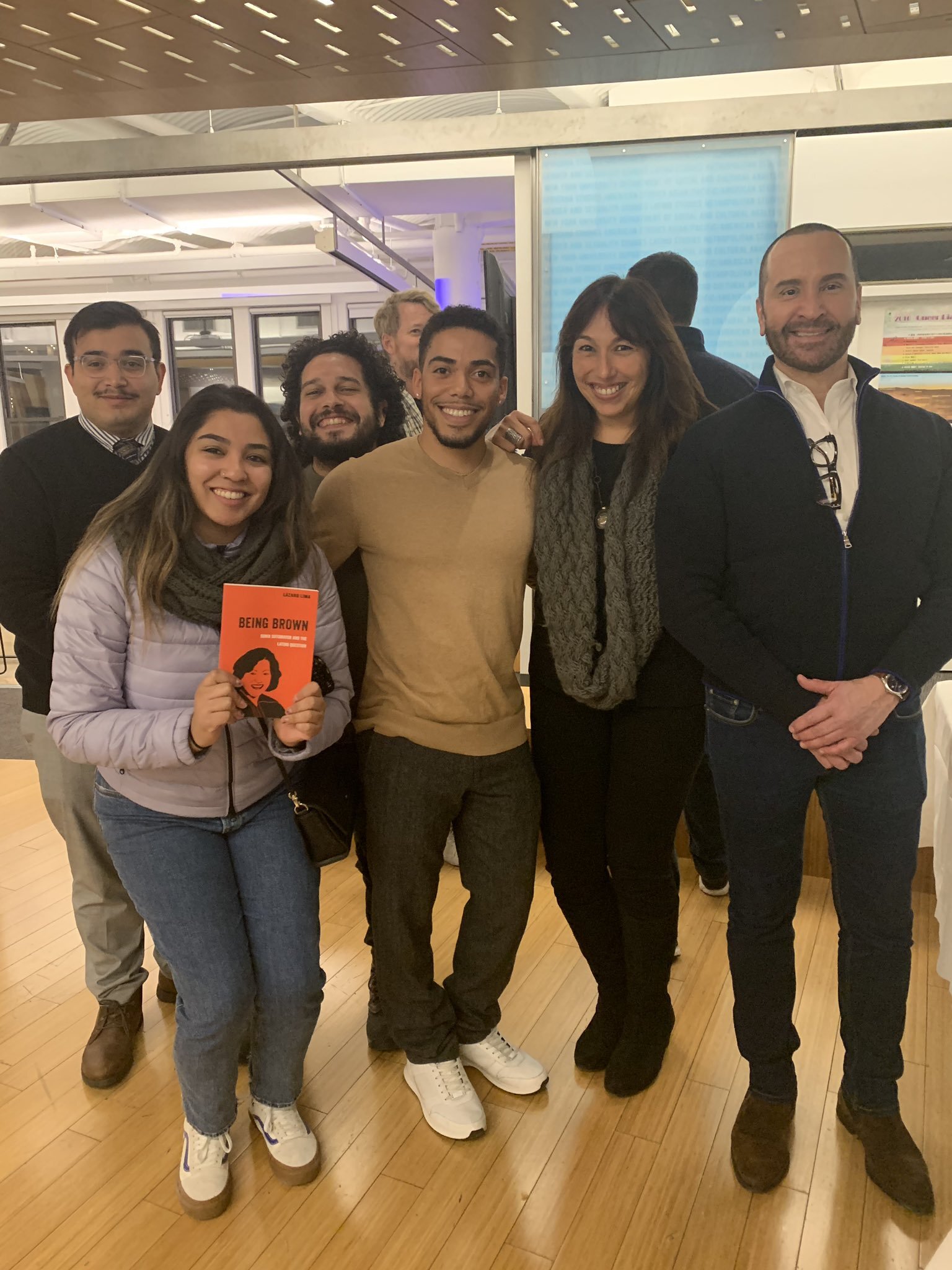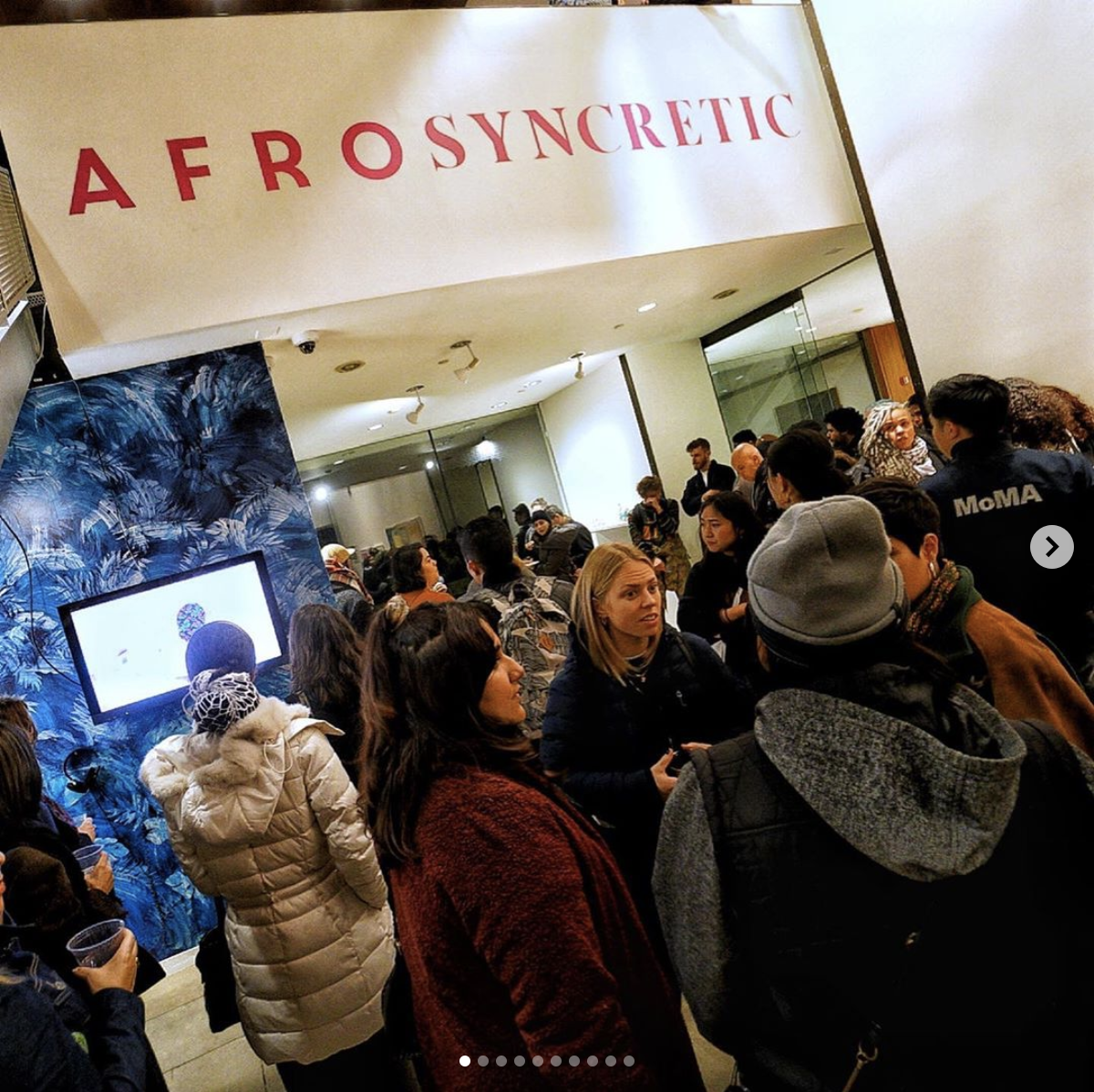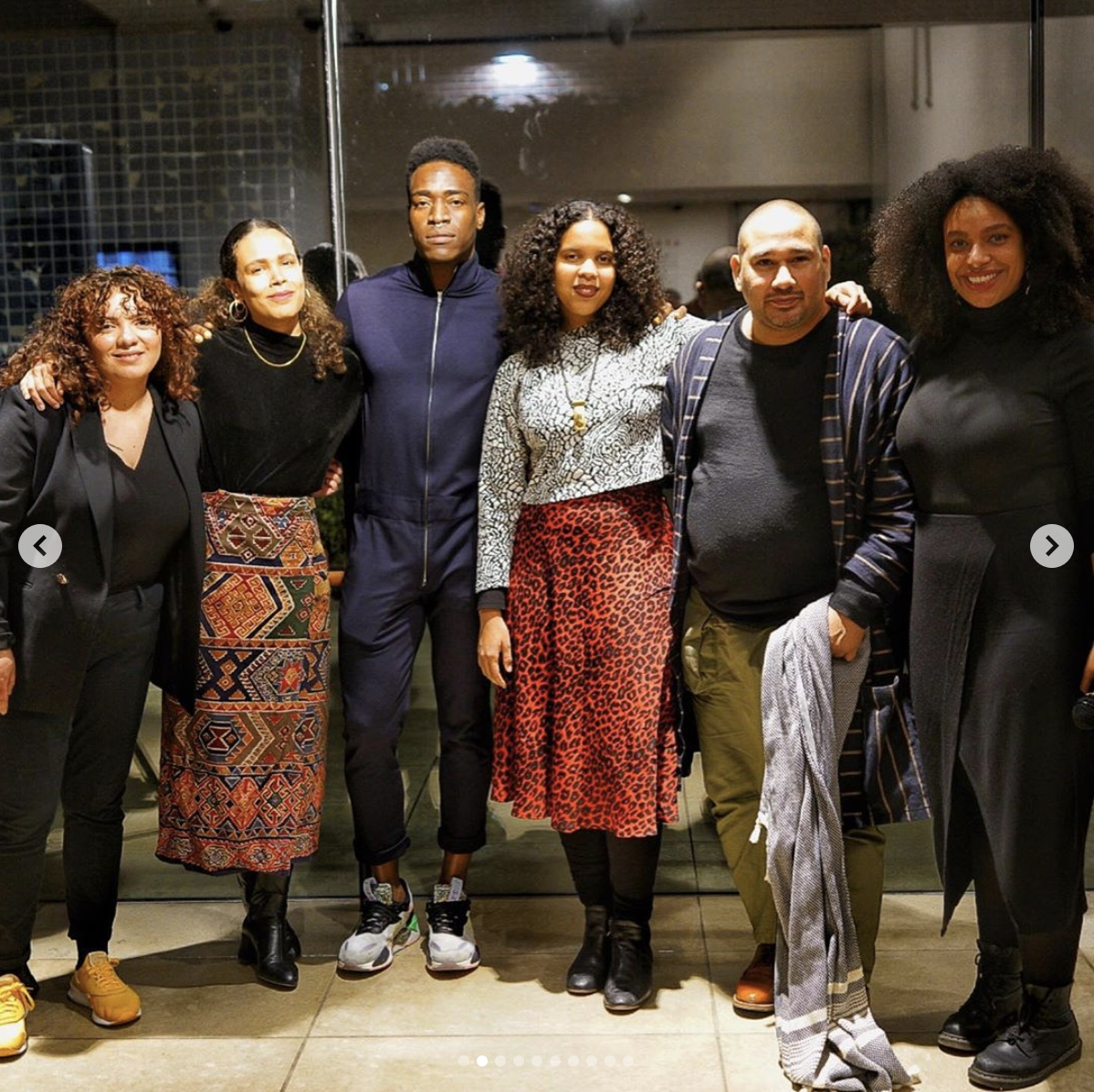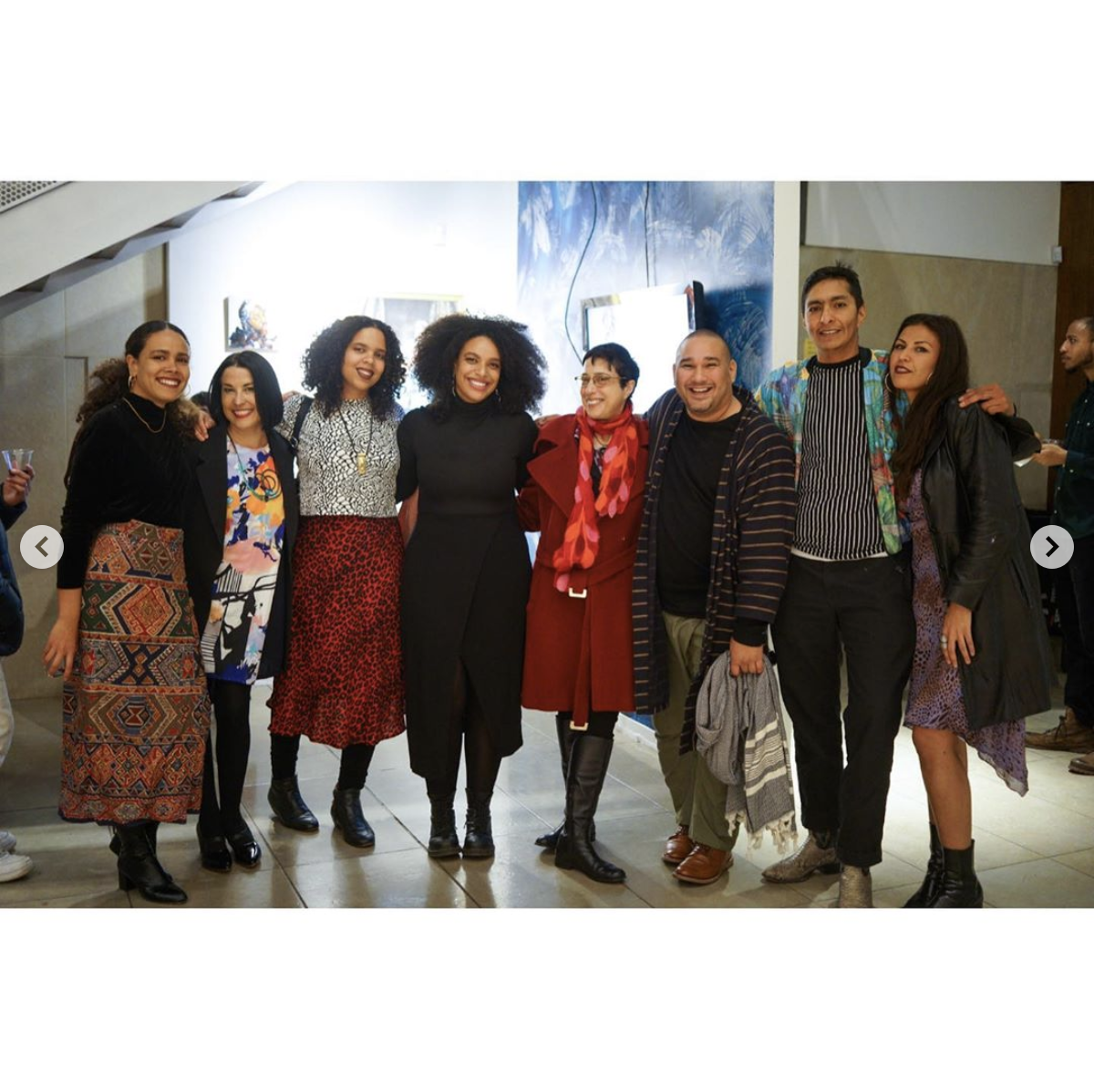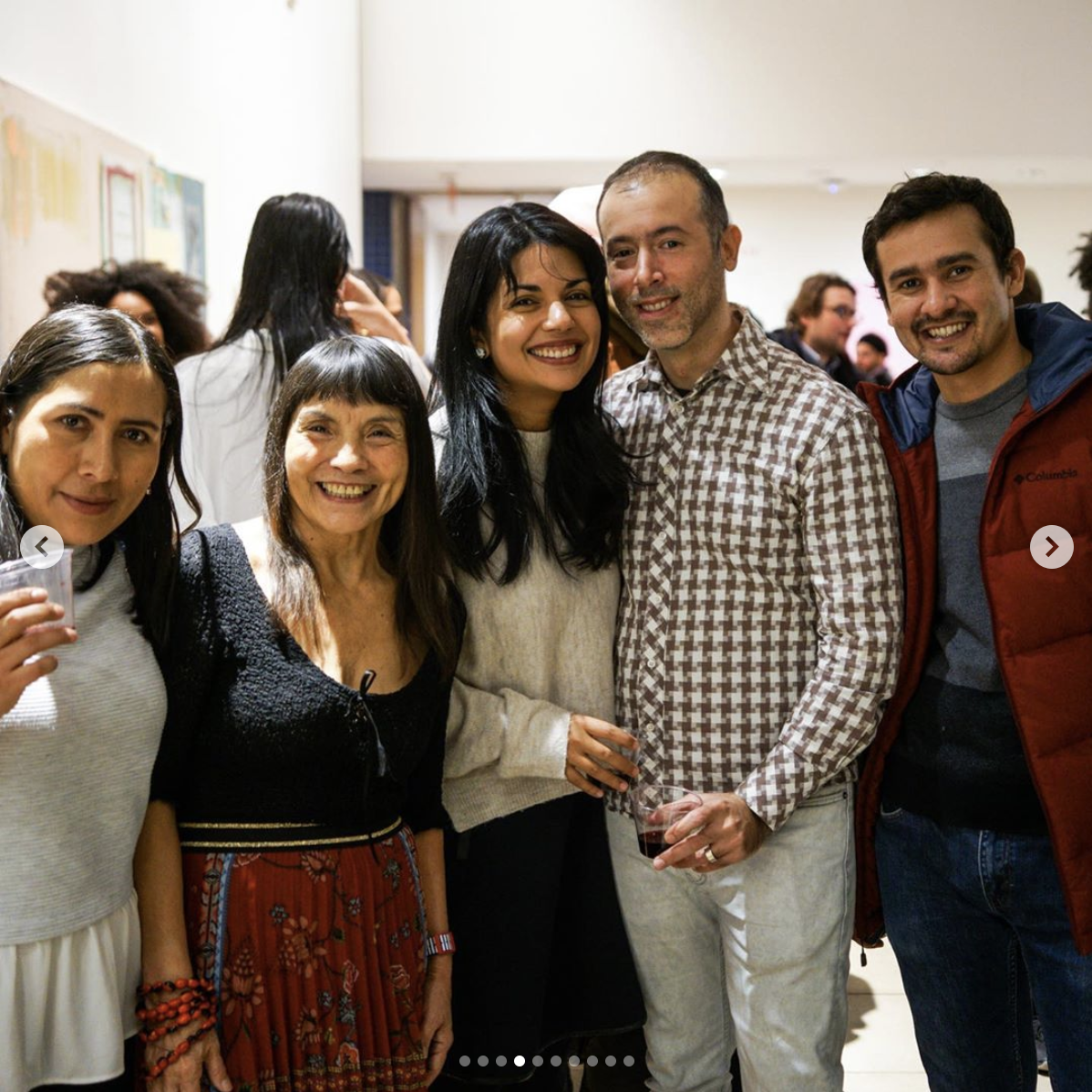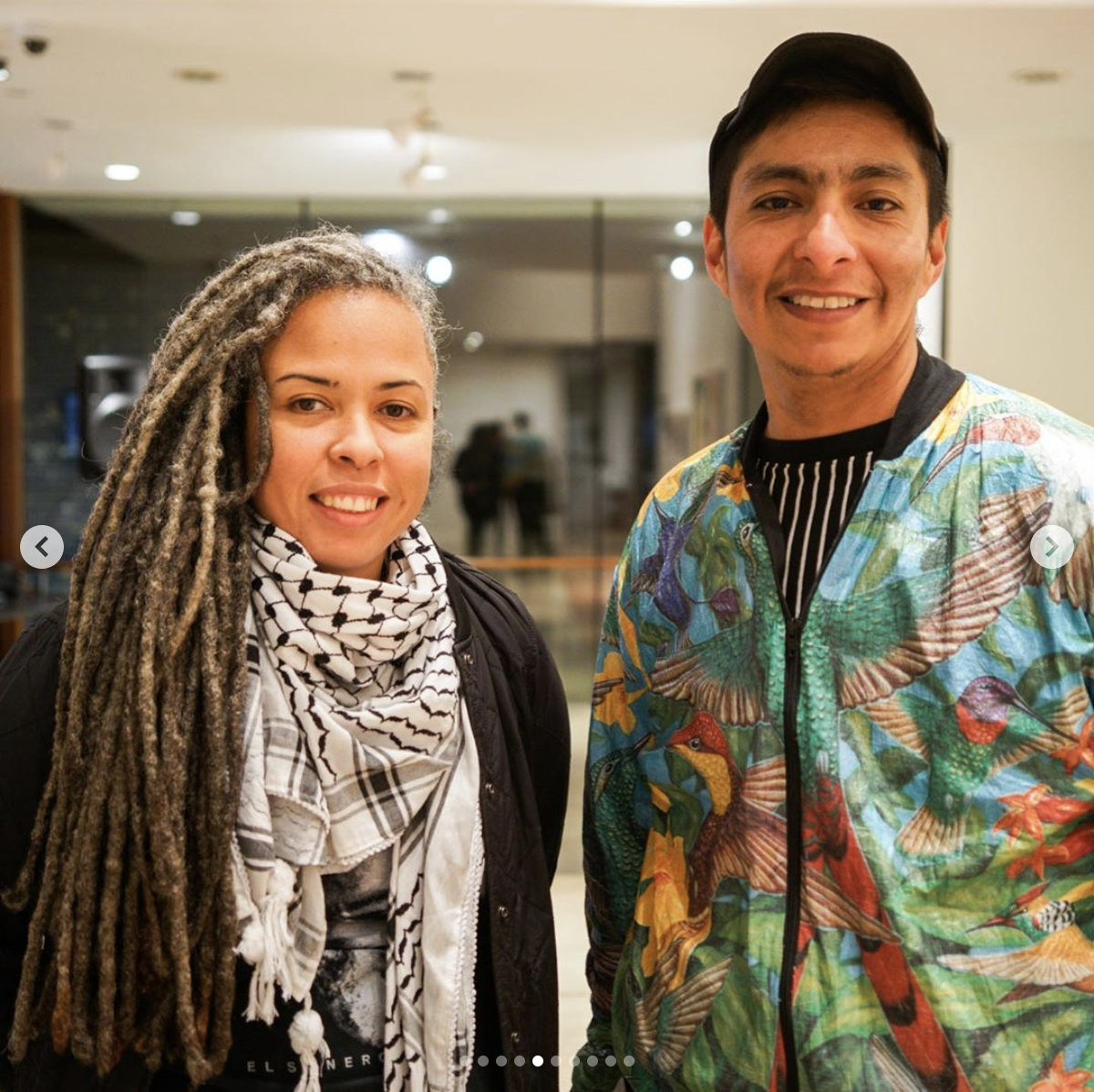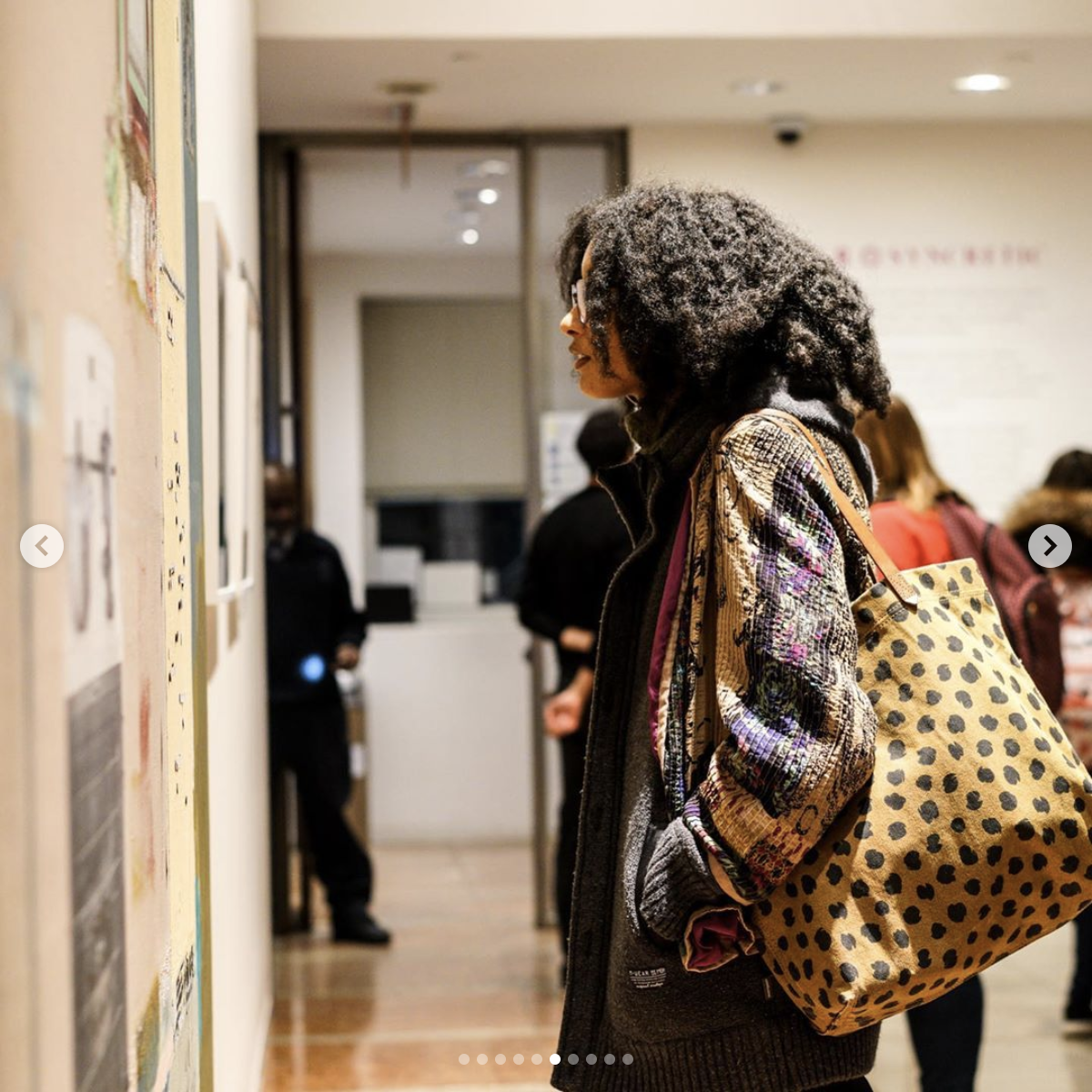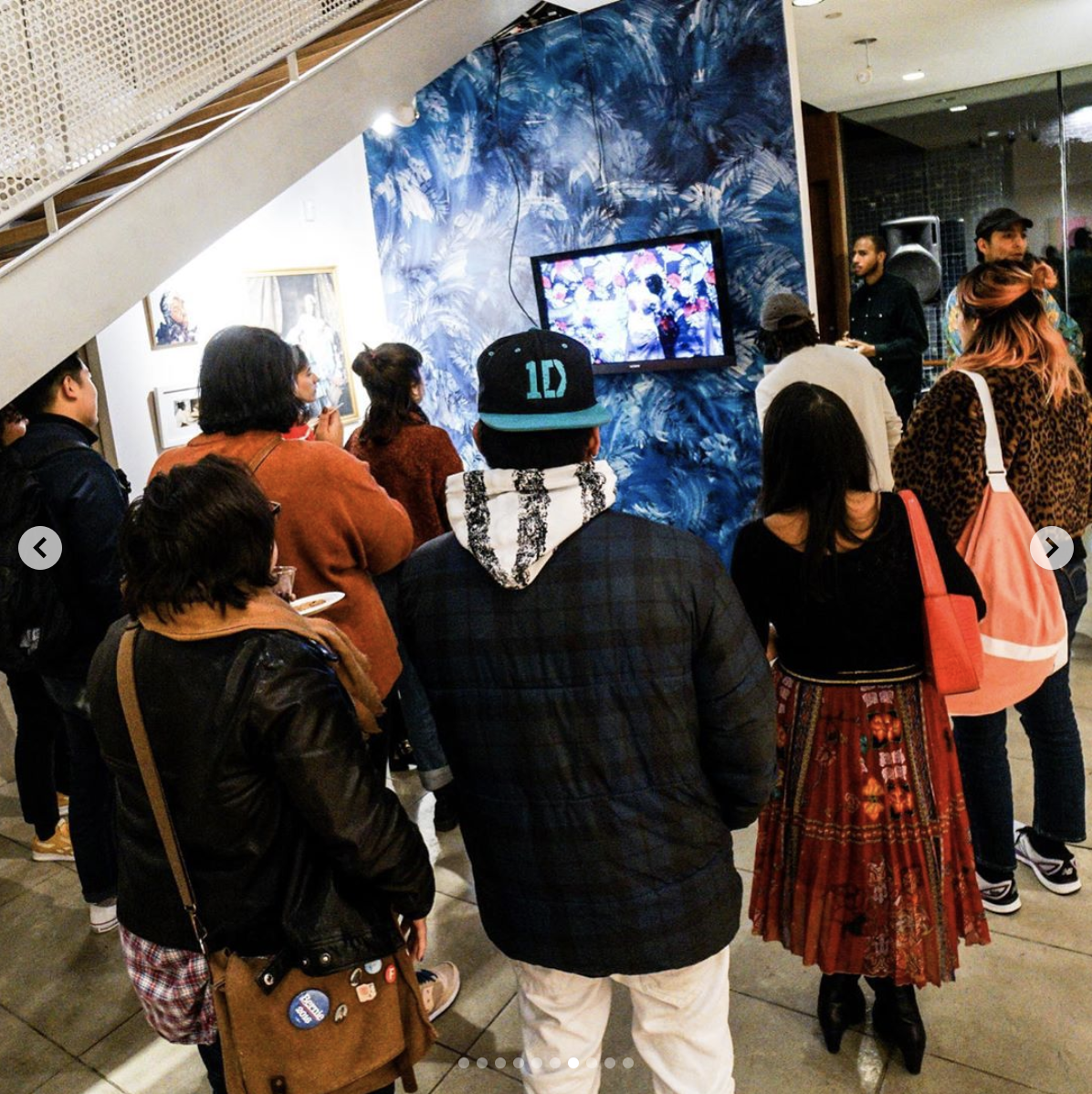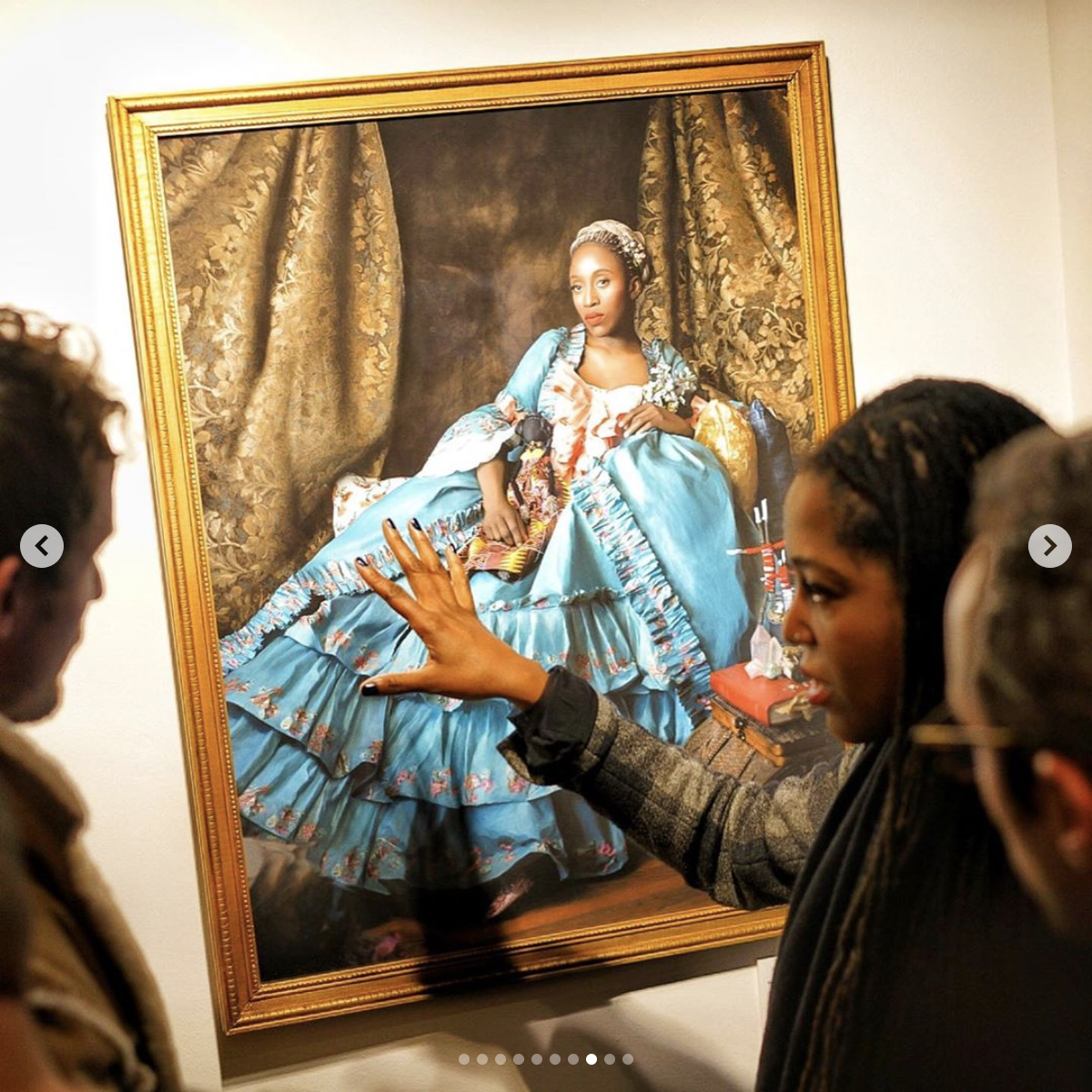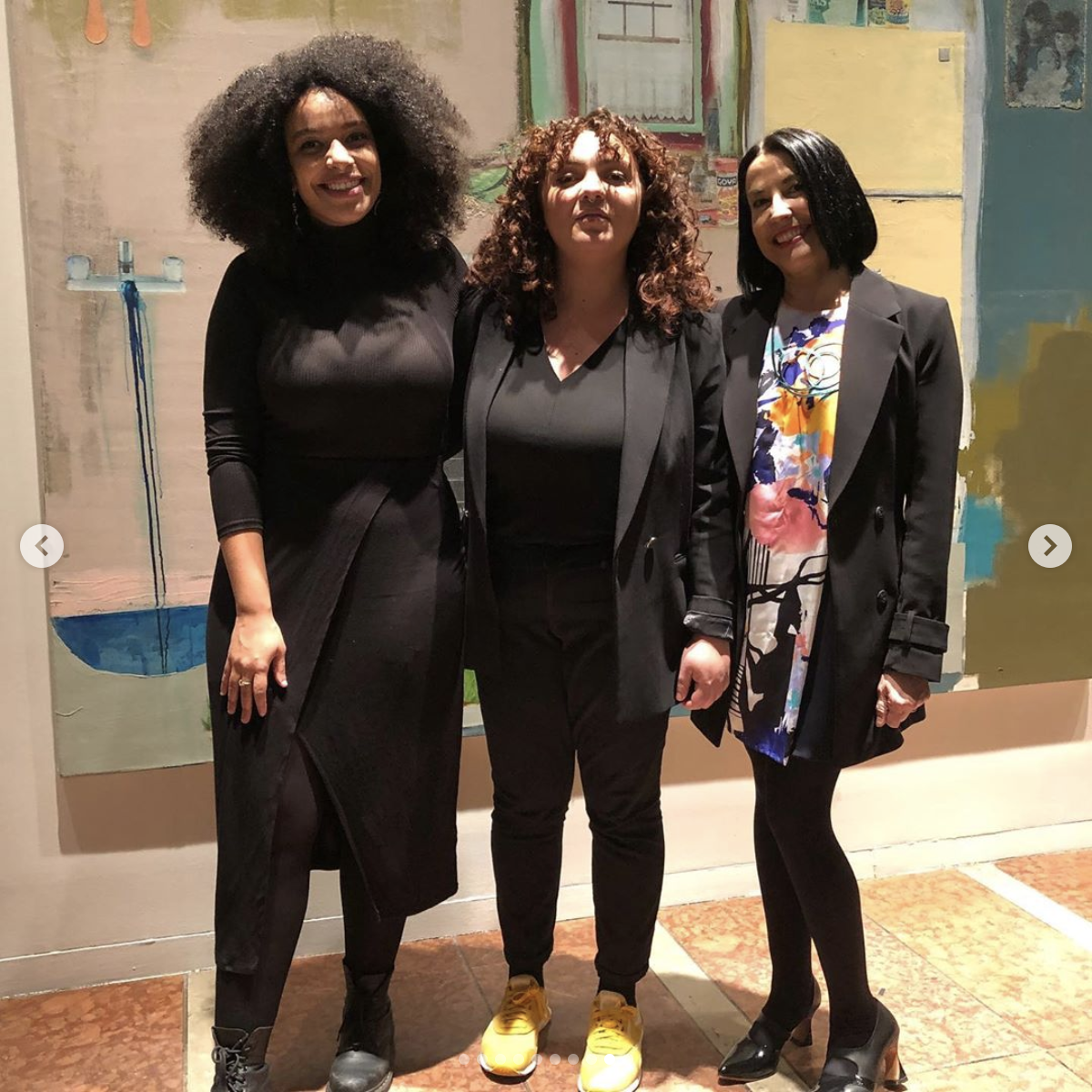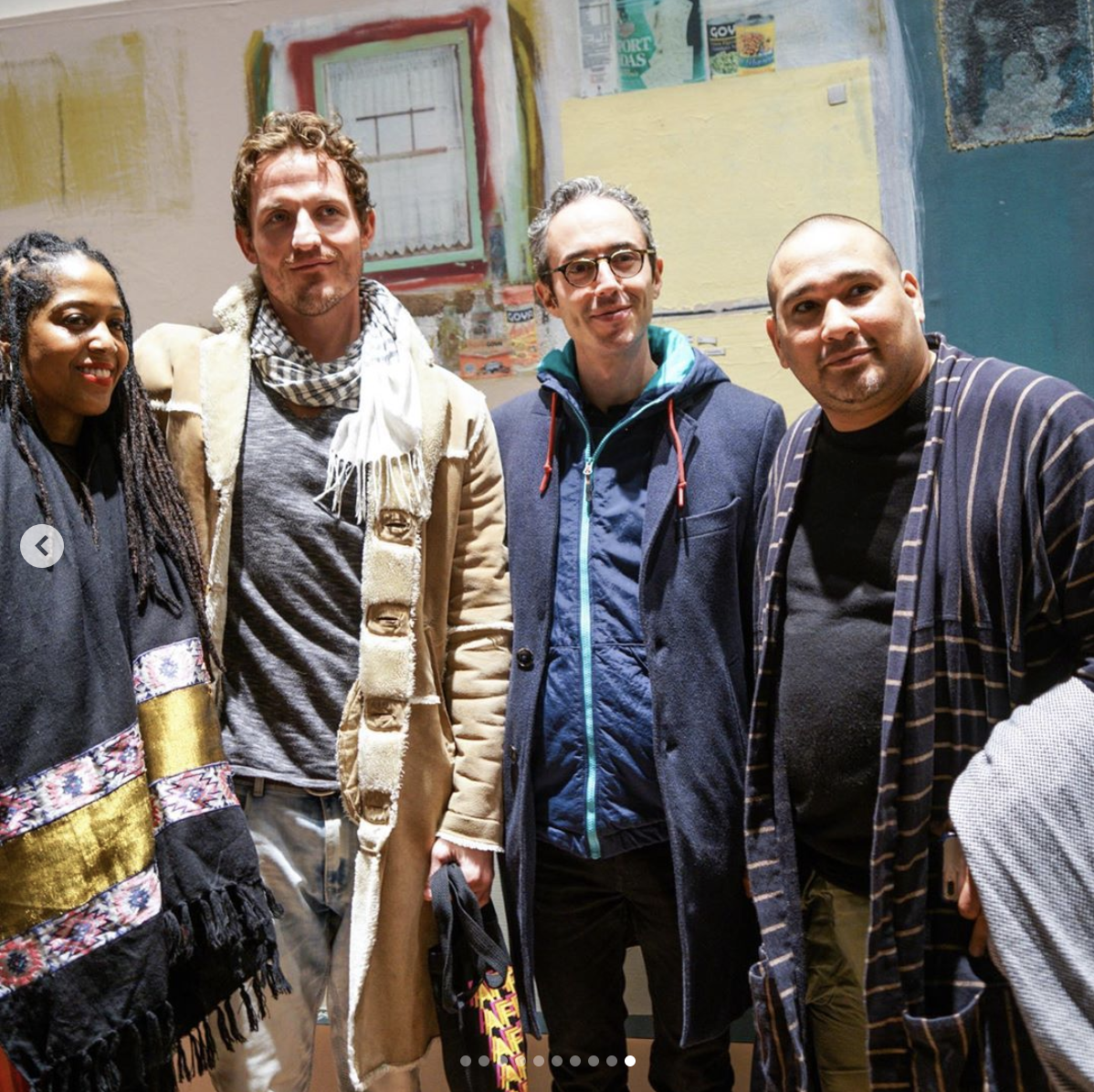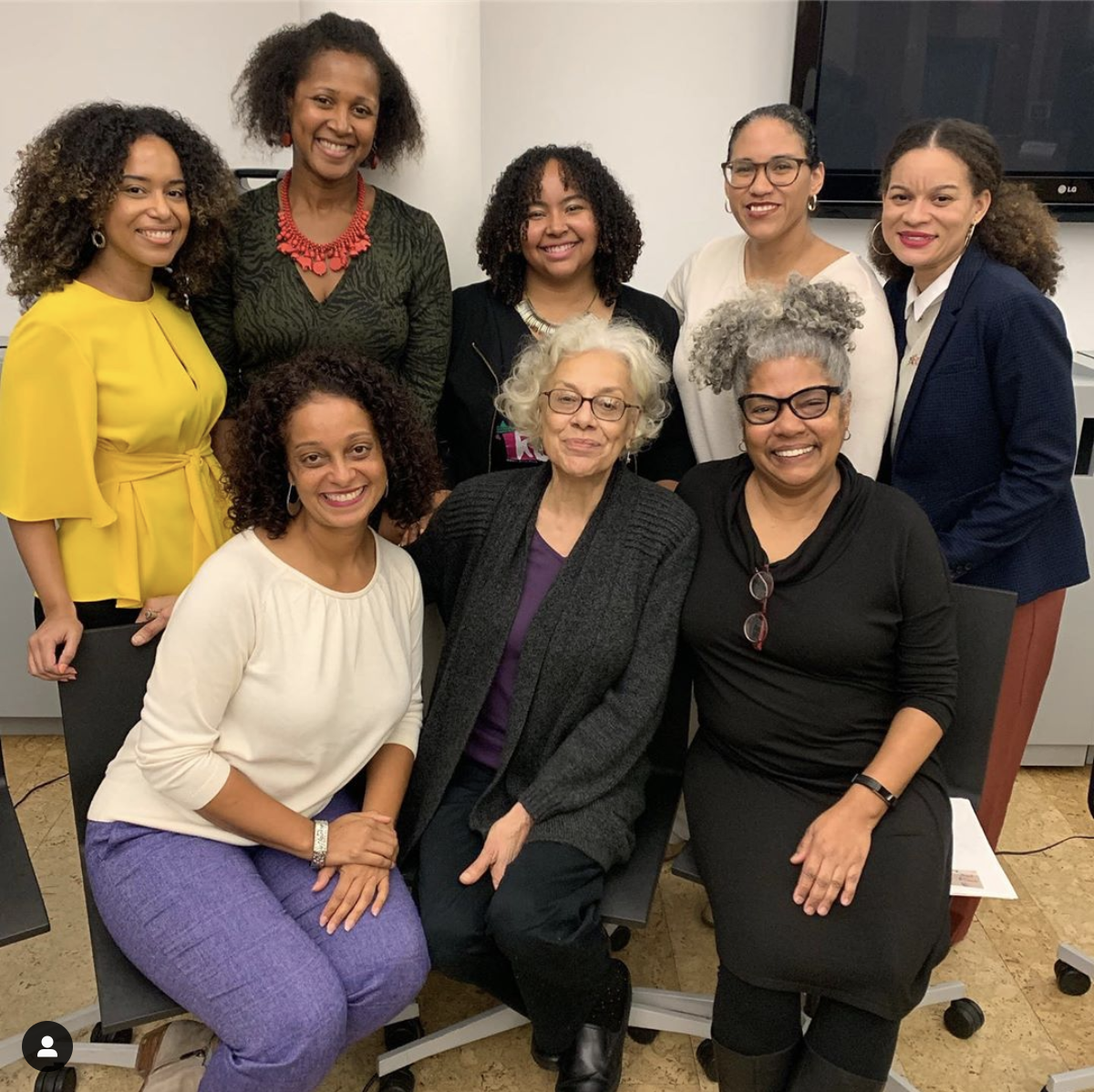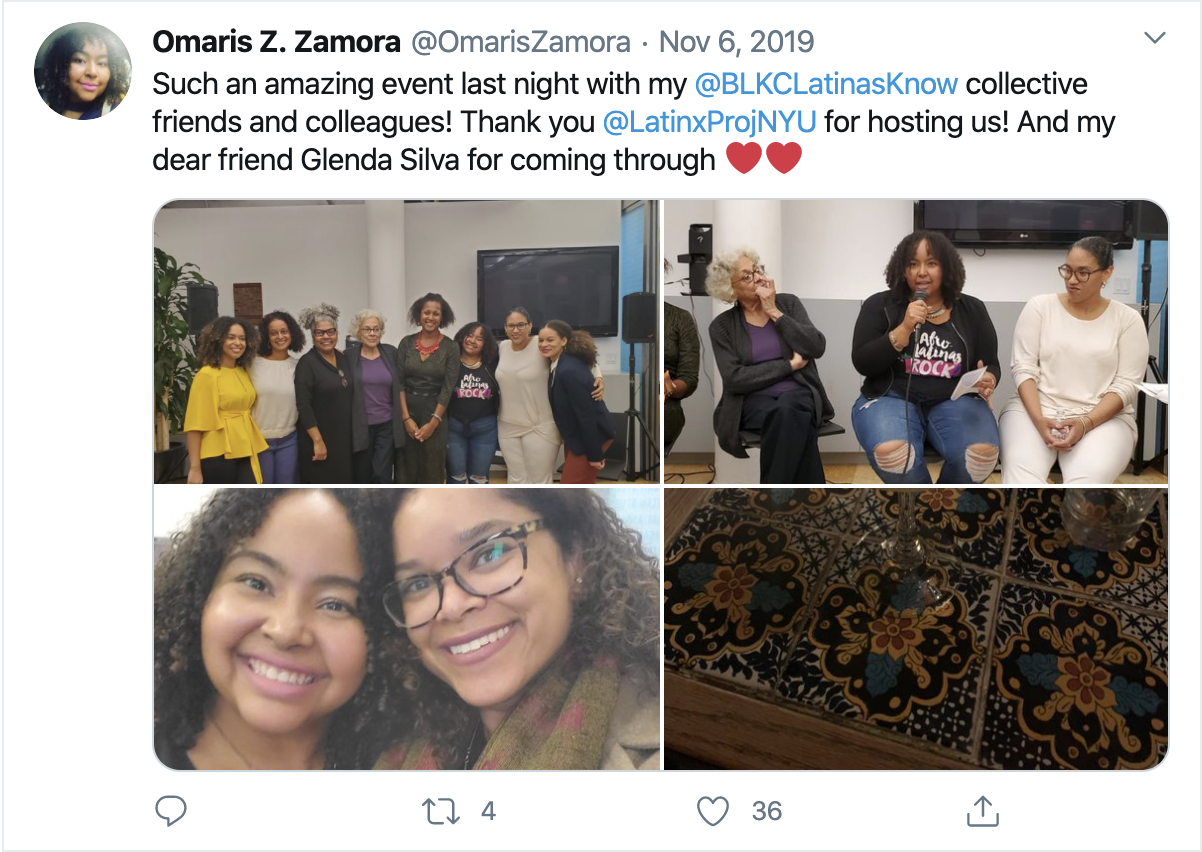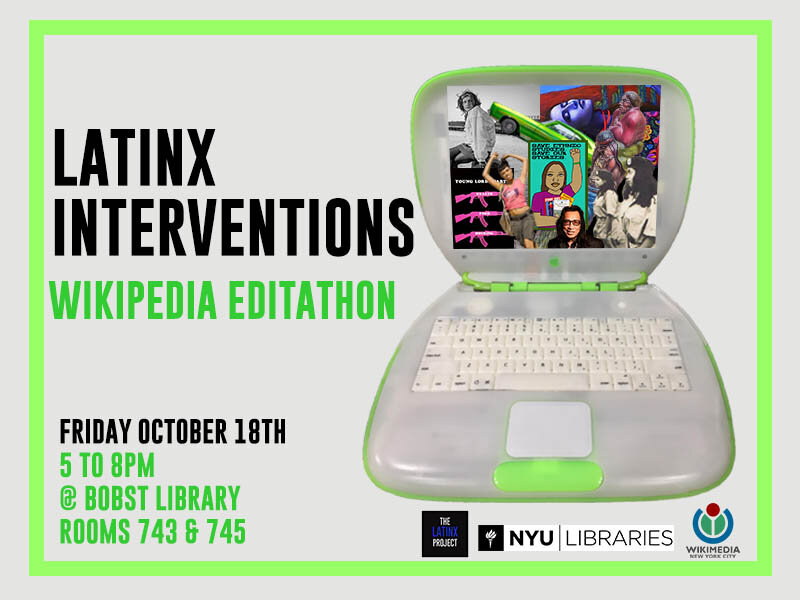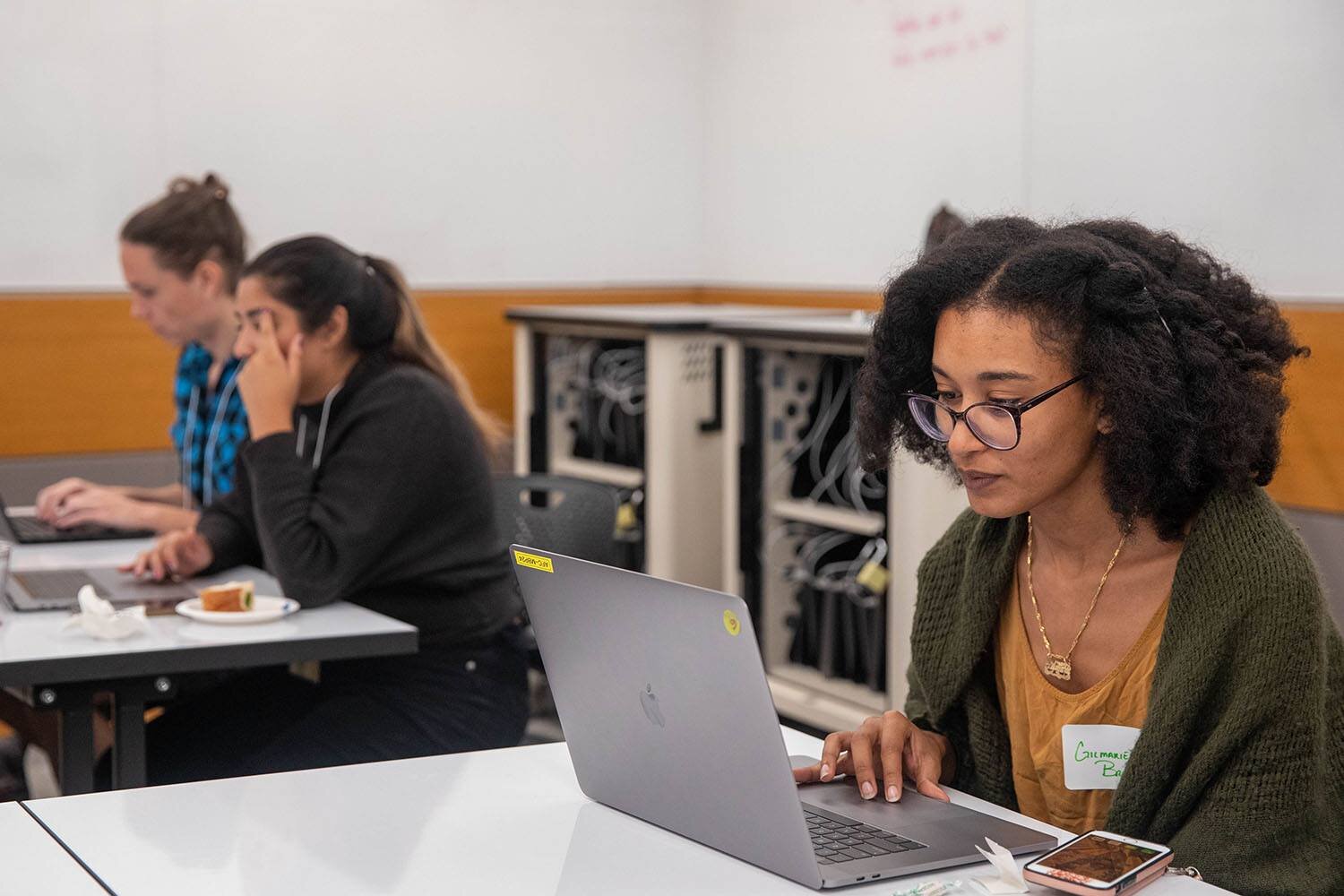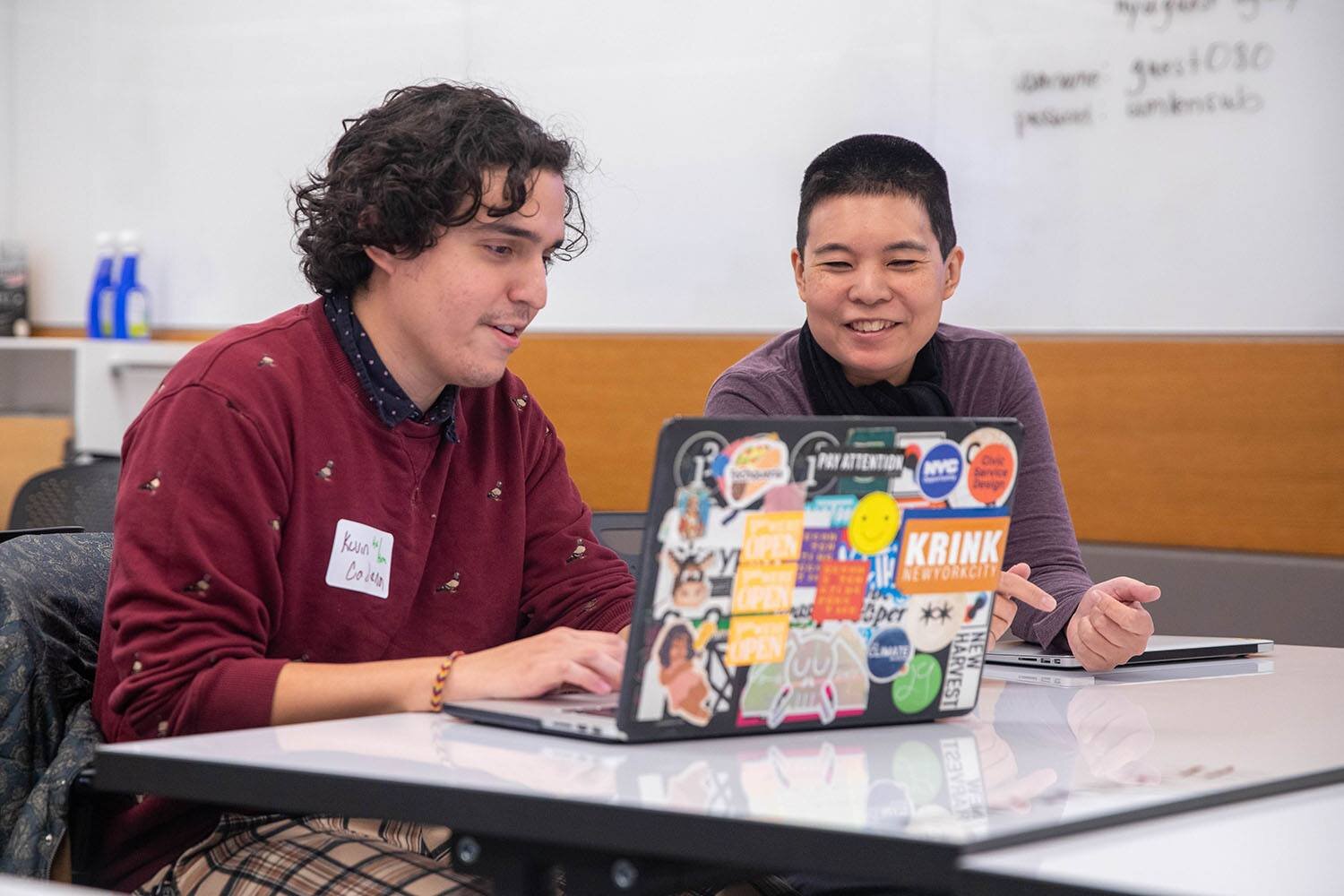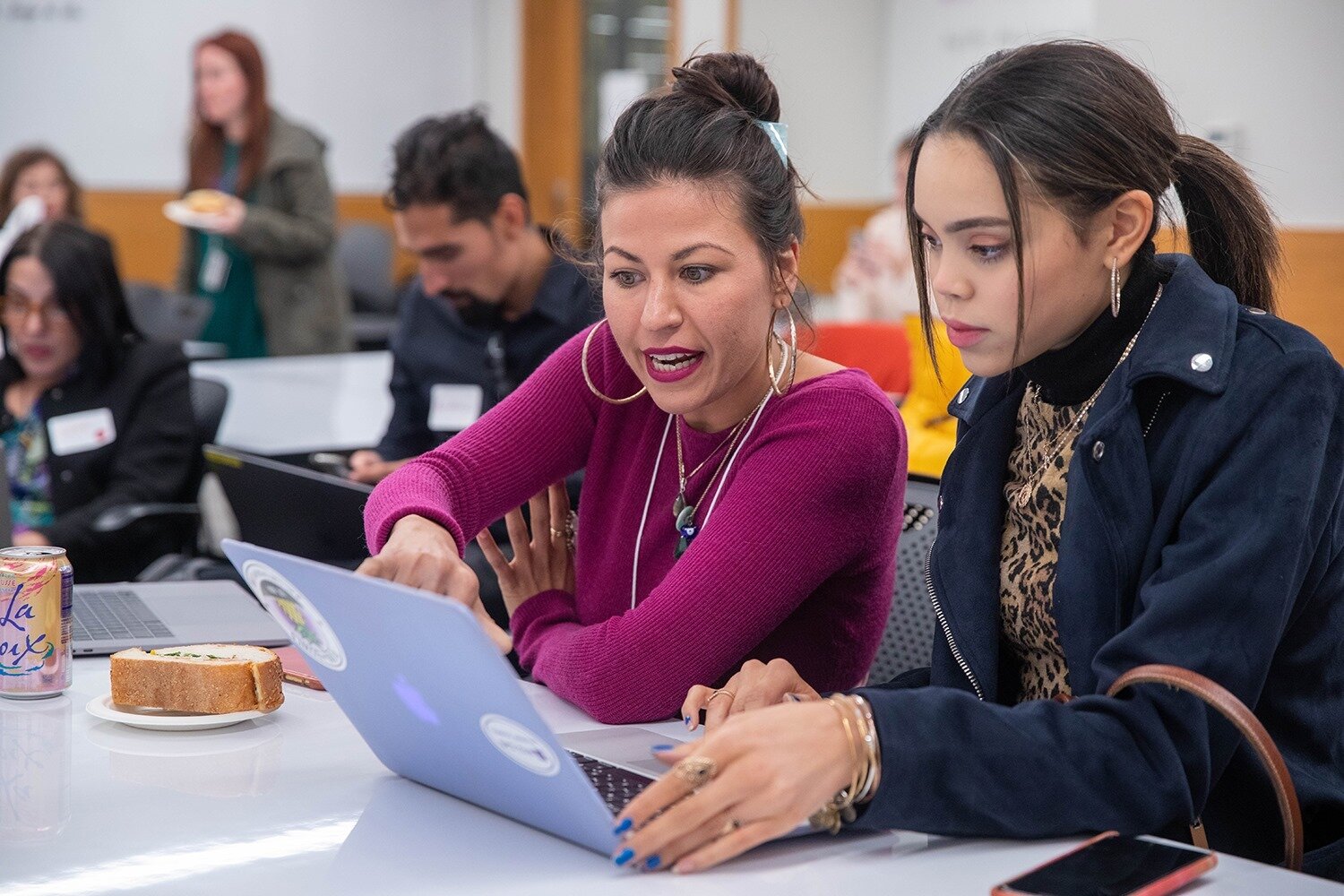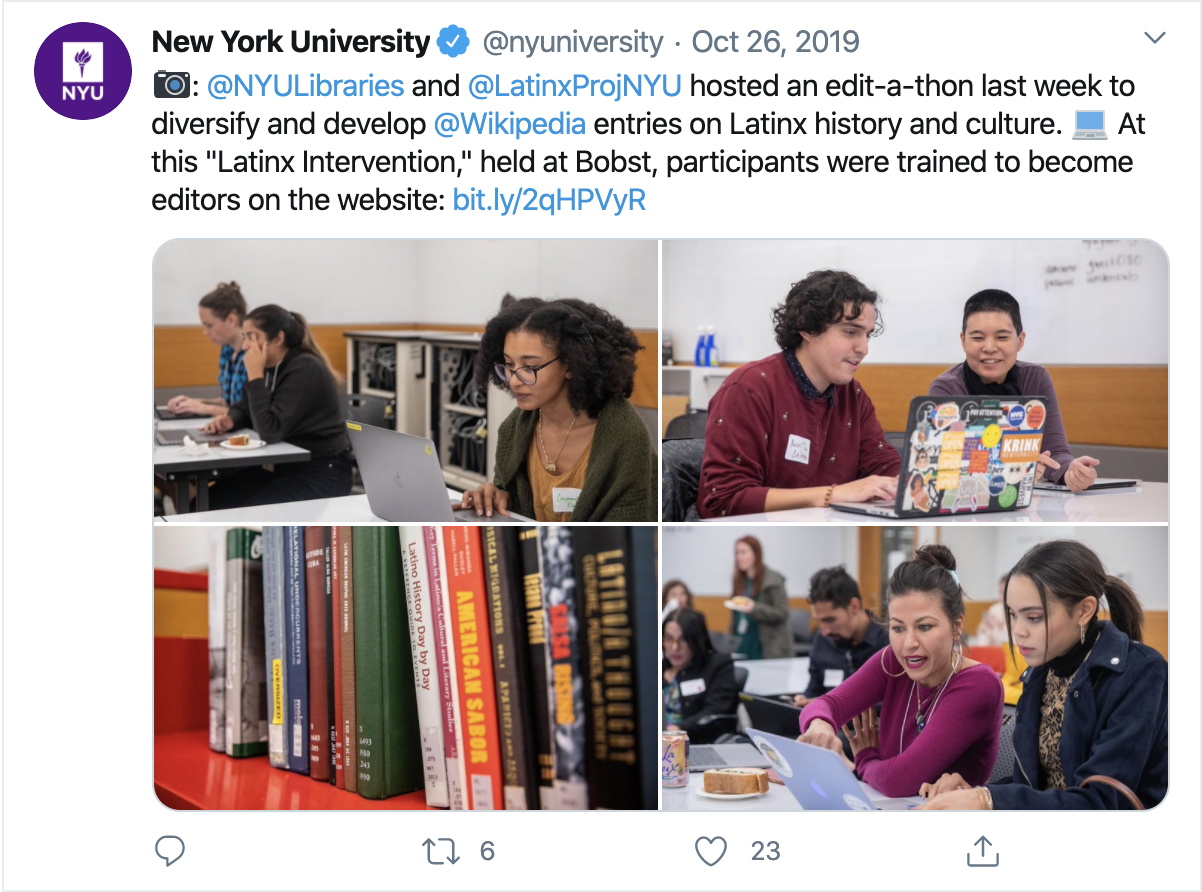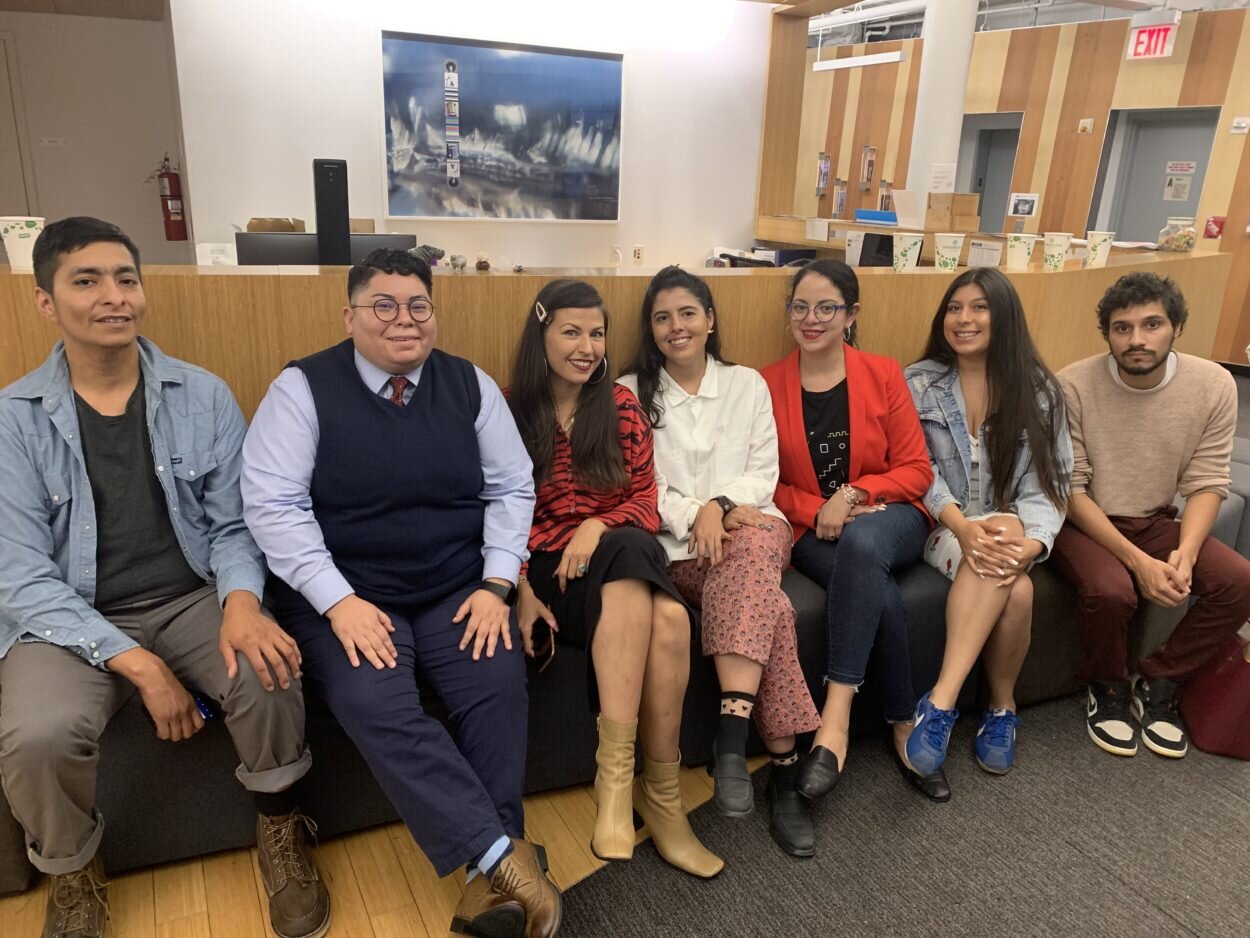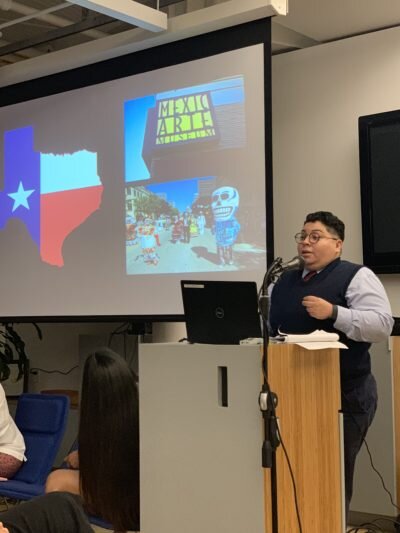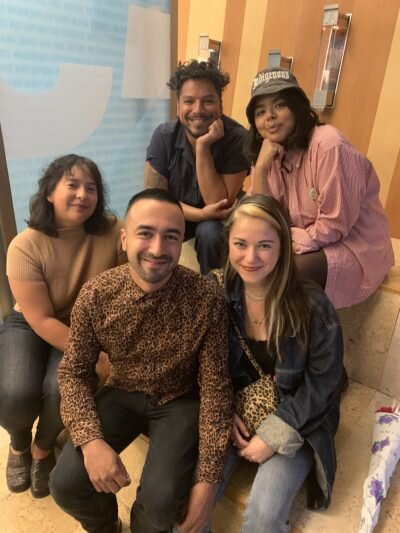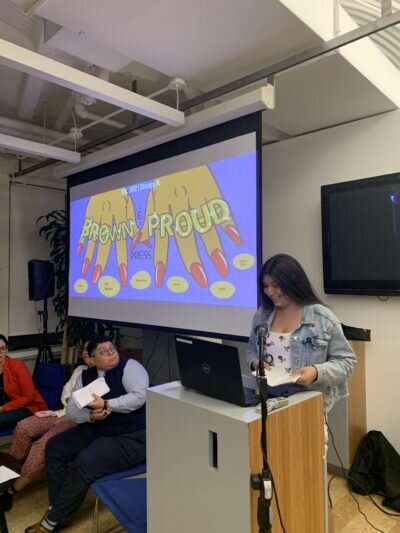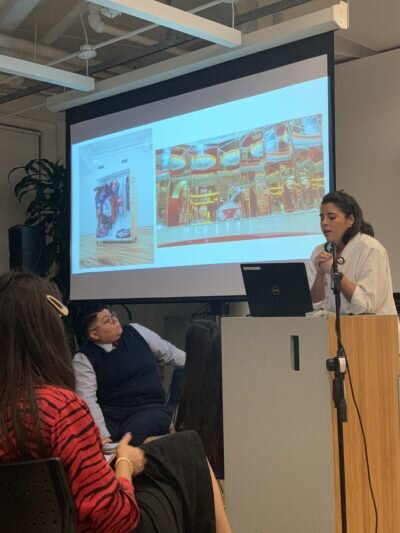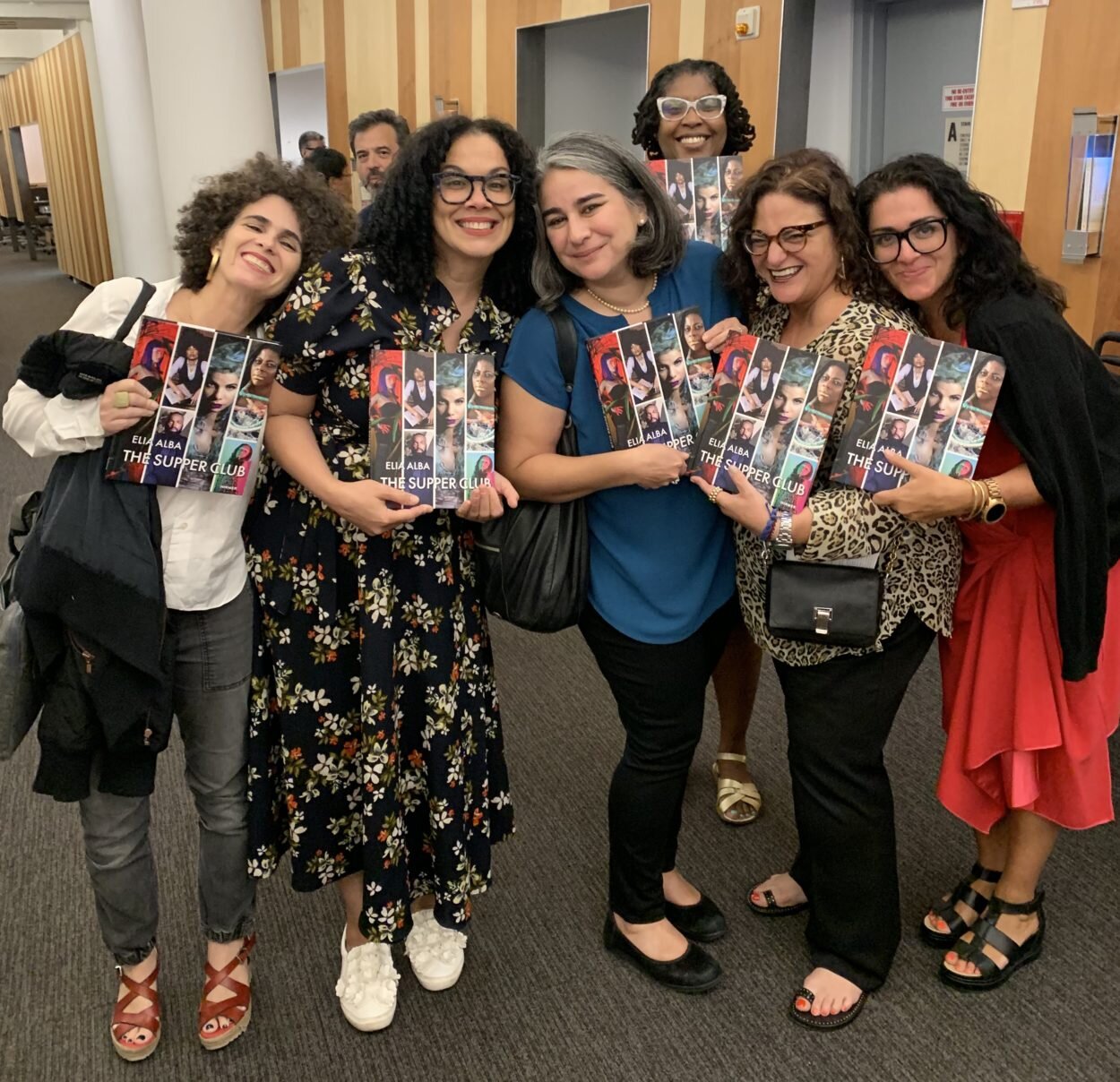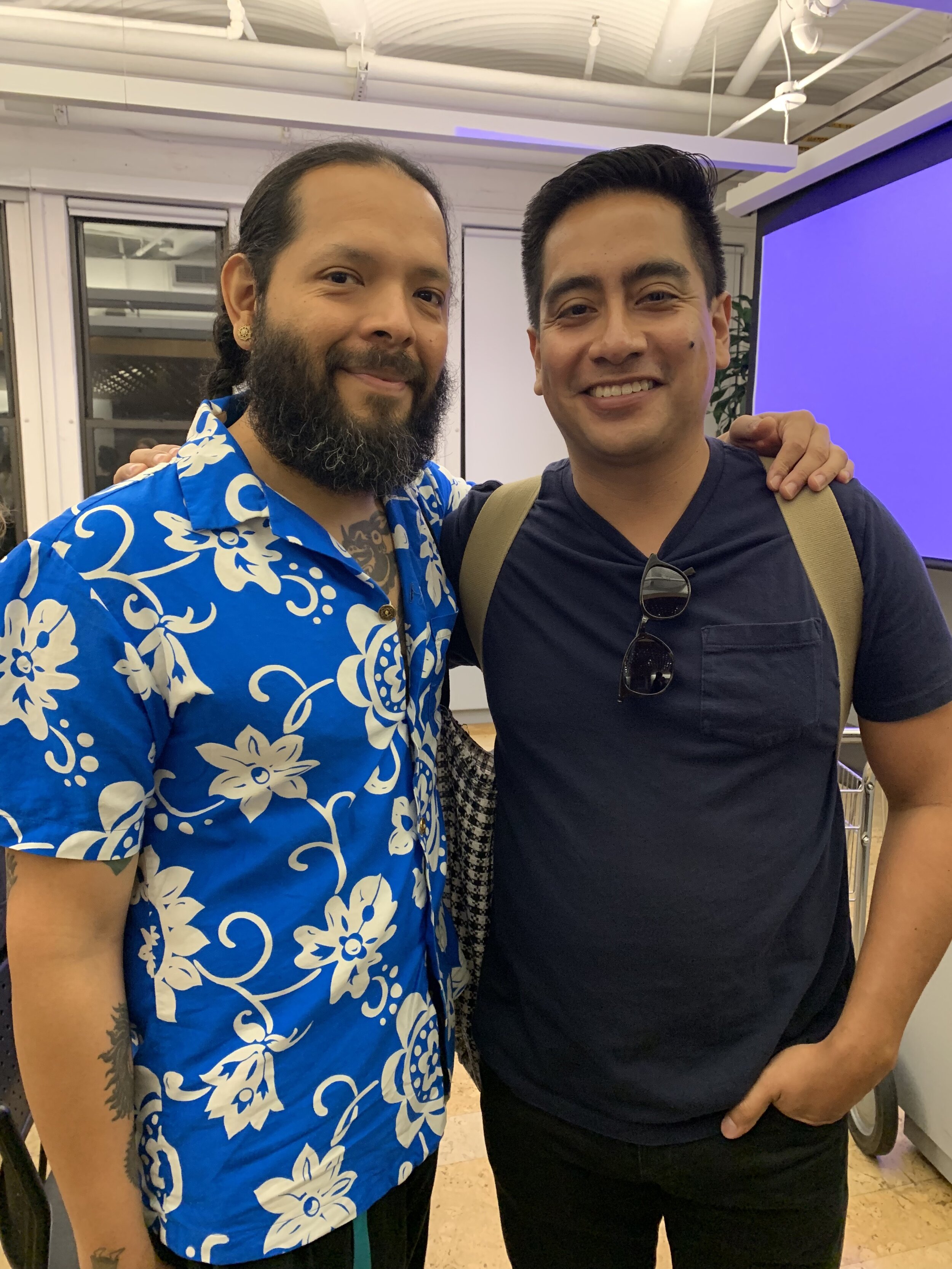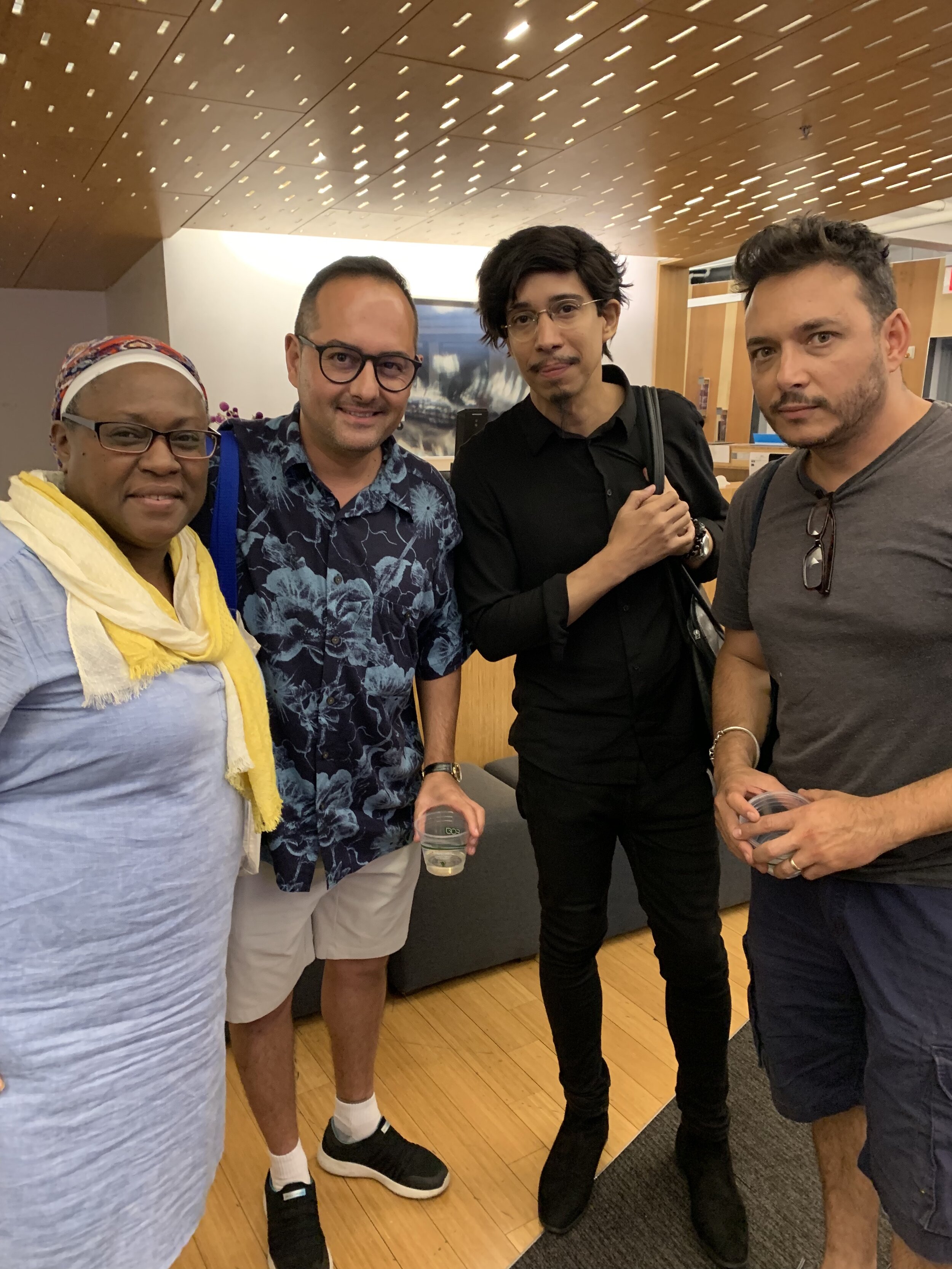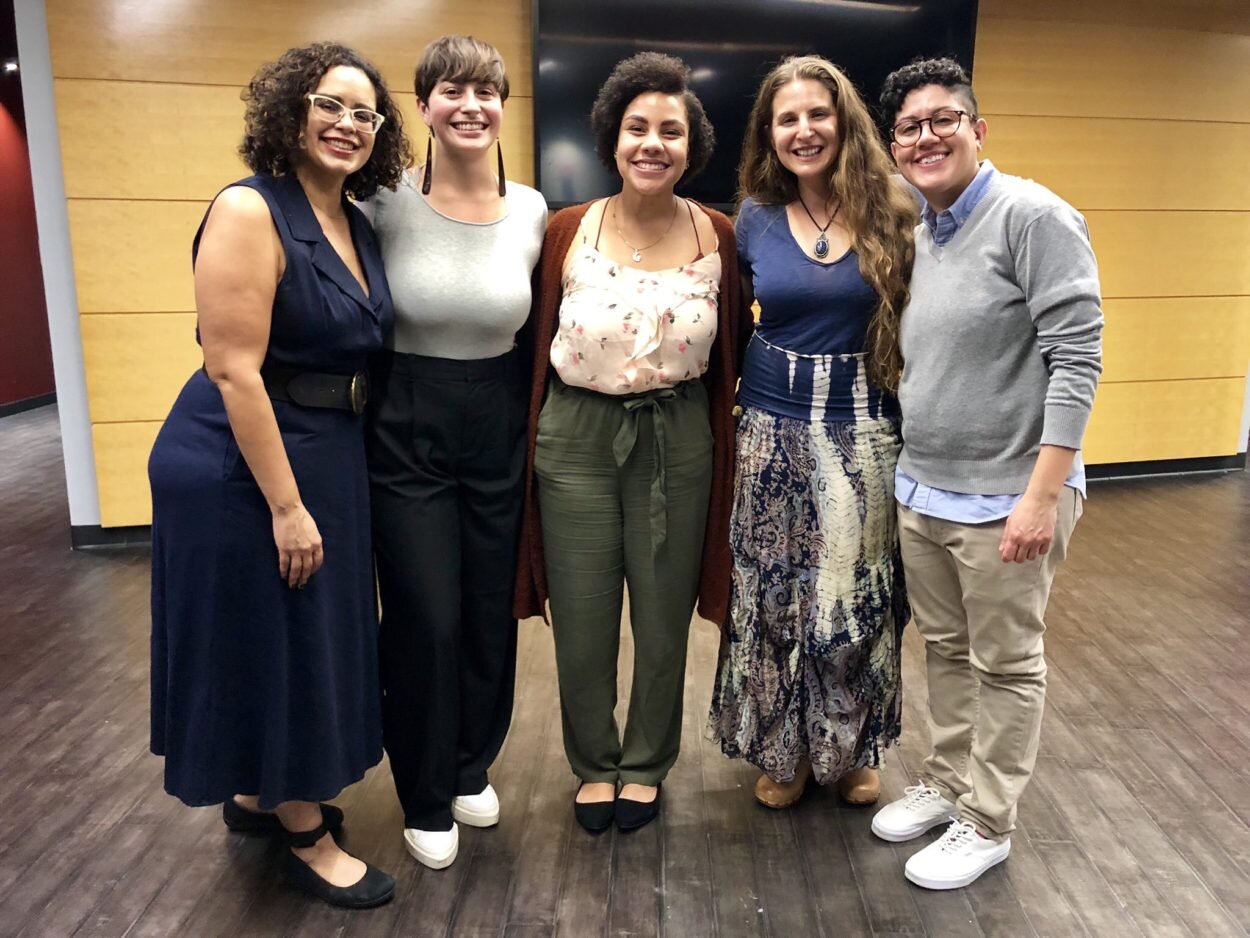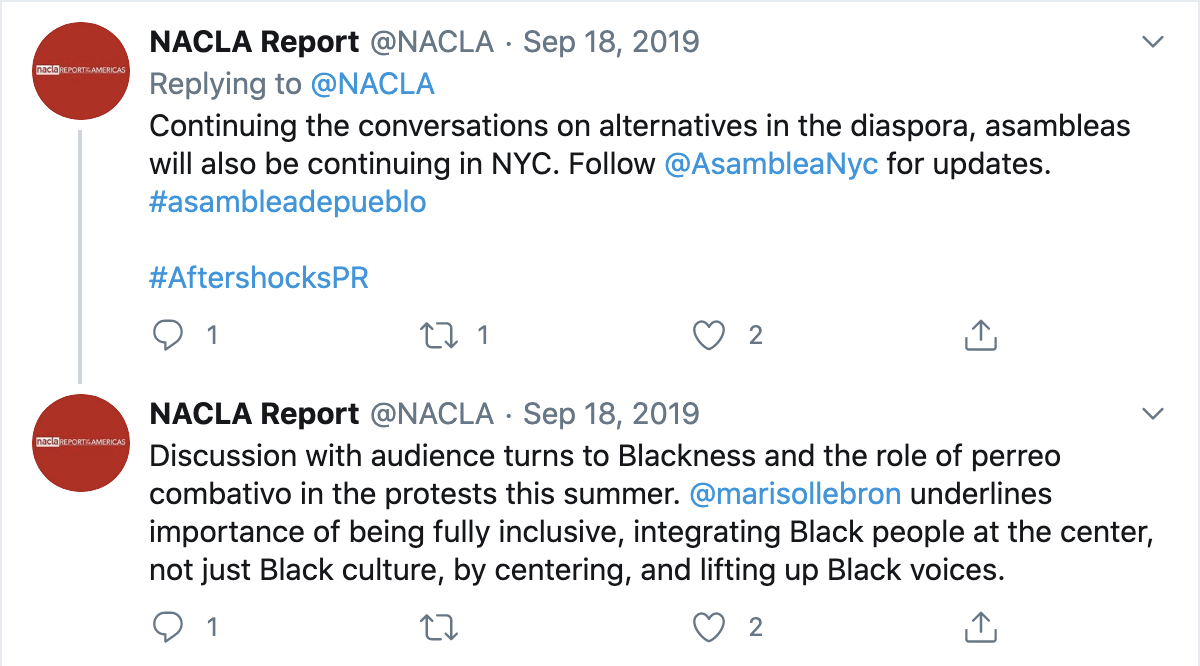
Social Media Workshop for Artists and Educators with Robin Cembalest
How can creatives and academics leverage the power of social media platforms to grow a community and social capital, connect with expanding networks, and track news and information? In this workshop, influencer and editorial strategist Robin Cembalest shares actionable tips to use Instagram, Twitter, Facebook, and LinkedIn most effectively.
Former ARTnews Executive Editor Robin Cembalest is an award-winning investigative reporter who has published articles in The New York Times, The Wall Street Journal, and El Pais, in addition to many other newspapers and magazines in the United States and Europe. Described by artnet as “one of the leading lights of art-world social media,” Cembalest is a cultural journalist now best known for her art-filled Instagram feed, @rcembalest. In her consulting business Robin Cembalest Editorial Strategies she helps institutions and individuals to design and implement editorial and digital content.
Event Recap
Thanks to all who joined Robin’s workshop which featured new approaches for posting on social media during a pandemic. This event was an Artnet Editors’ Picks: 12 Events For Your Virtual Art Calendar This Week.
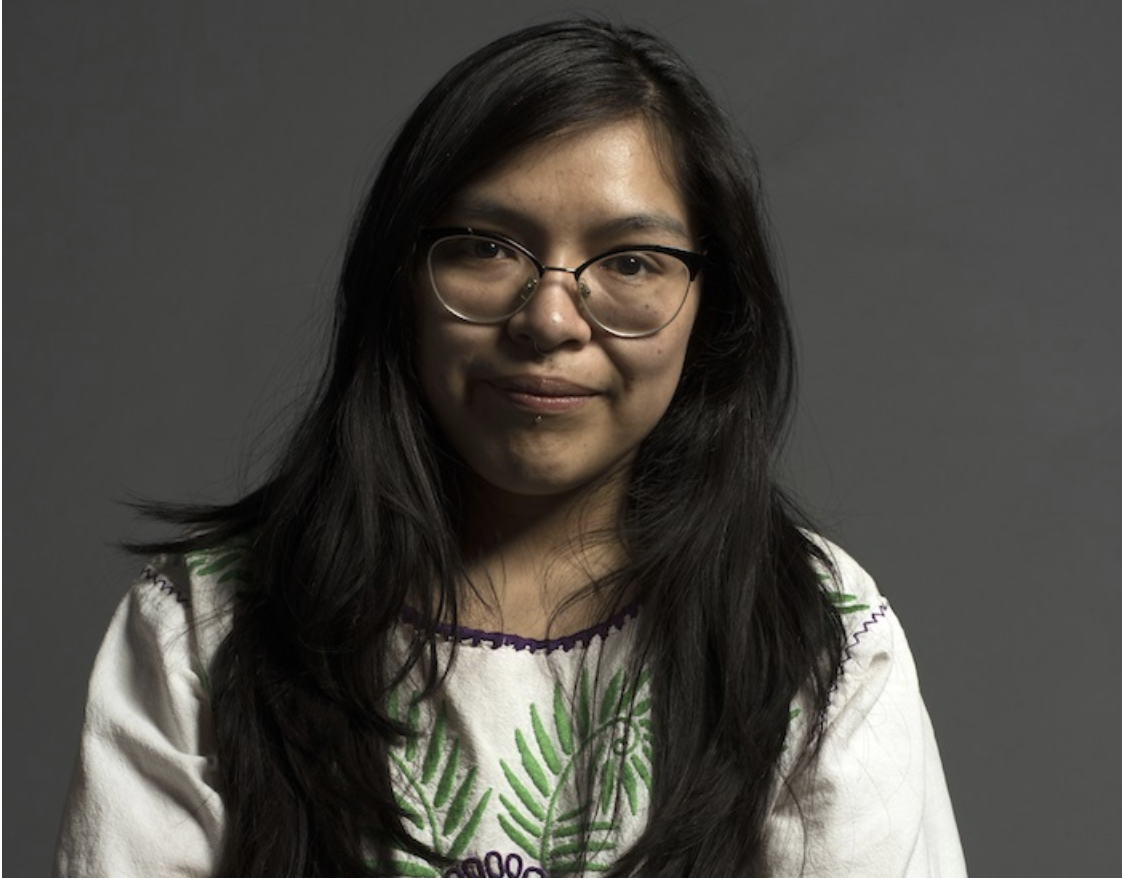
El Salón – De Mi Casa a Tu Casa, Featuring Eva Mayhabal Davis and Friends
In collaboration with art advocate Eva Mayhabal Davis, and in the spirit of community-based sharing, we will co-facilitate a Zoom conversation to showcase local queer artists of color. We will gather for food, conversation, and maybe if we’re lucky some dancing in the comfort of our homes.
El Salón is a gathering to share ideas, food, conversation, and acknowledgment of presence. This assembly travels and collaborates with various spaces to host forums on contemporary art and cultural topics. Most of the time as a nutritious and soulful potluck.
Each evening contextualizes artists, collectives, creative endeavors, personal journeys, and histories. Through curated presentations, abstract ideas are considered and expressions of art and culture are shared. The focus is on intersectional art-making and responses to socio-political systems and raw cultural exchange.
This is a sustainable practice, environmentally conscious that considers alternate economies such as food justice and resource sharing. As such, through a potluck model, we strive to nurture the group with food, knowledge, and ideas.
Eva Mayhabal Davis has organized exhibitions at BronxArtSpace, En Foco, Expressiones Cultural Center, MECA International Art Fair, and Ray Gallery. Davis was Gallery and Studio Program Manager at Smack Mellon from 2016 to 2019. In 2020, she will be the Curator-in-Residence at Brooklyn’s Kunstraum LLC. She has spoken on her curatorial work at AC Institute, Artists Space, Queens Museum, The 8th Floor, NYC Crit Club, and Queensborough Community College. Her writing has been featured in Hemispheric Institute’s Cuadernos, Nueva Luz: Photographic Journal, CultureWork Magazine, and the Guggenheim Museum Blog. She was a Milton and Sally Avery Arts Foundation Curatorial Fellow at the Bronx Museum of the Arts and an alum of the No Longer Empty: Curatorial Lab. In 2018, she participated in the Art & Law Program Fellowship, and in 2019 she was a Leadership Advocacy Fellow for the National Association for Latinos in Art and Culture and an NYFA Leadership Boot Camp participant. Davis was born in Mexico, raised in the United States, and studied art history at the University of Washington. Now based in New York, she works with artists and creatives in the production of exhibitions, texts, and events. As a cultural liaison, her focus is on supporting equity and social justice values in arts and culture.
This event was organized by 2019-2020 Latinx Project Artist-in-Residence, Vick Quezada.
Event Recap
Thank you for joining us for El Salón: De Mi Casa a Tu Casa, featuring Eva Mayhabal Davis in conversation with Vick Quezada, Ray Ferreira, and Amaryllis DeJesus Moleski. Friends from all over the US and even PuertoRico and Panama joined us virtually. We were honored to host these brilliant artists thanks to the vision and curation of @evamayha, and Vick Quezada’s collaborative AIR programming.
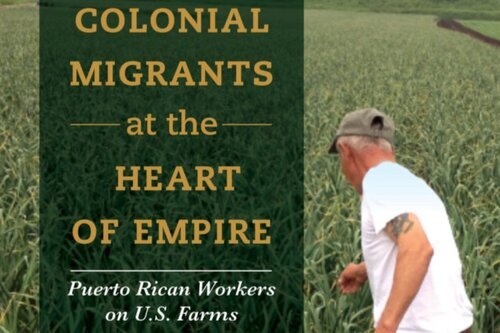
Book Presentation – Colonial Migrants at the Heart of Empire
Ismael García-Colón is an Associate Professor of Anthropology at the College of Staten Island and CUNY Graduate Center. He is a historical and political anthropologist with interests in political economy and oral history, and the author of Land Reform in Puerto Rico: Modernizing the Colonial State.
Event Recap
On March 11, 2020, The Latinx Project hosted a presentation by Ismael García Colón, whose new book, Colonial Migrants at the Heart of Empire: Puerto Rican Workers on U.S. Farms, focuses on the “experiences of Puerto Rican migrant workers in continental U.S. agriculture in the twentieth century.”
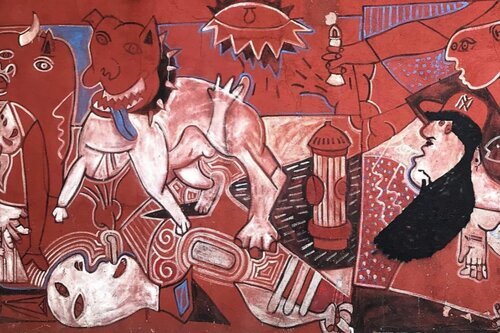
Una Voz for the Spanish Republic – The Latino Left in Anti-Fascist New York
Cristina Pérez Jiménez (Ph.D. 2016, Columbia University) is an Assistant Professor of English at Manhattan College. She specializes in U.S. Latinx and Caribbean literature and cultures, with a strong subspecialty in theories of Race and Ethnicity, as well as migration and Diaspora Studies. Dr. Pérez Jiménez is a 2019-2020 Ford Foundation Postdoctoral Fellow. She is also the recipient of the 2016 Bancroft Dissertation Prize, The 2017 Latin American Studies Association’s Latino Studies Section Outstanding Dissertation Award, The 2018 Biennial Puerto Rican Studies Association Dissertation Award. Her scholarship has appeared or is forthcoming in Small Axe: A Caribbean Journal of Criticism, Post45, CENTRO Journal: Journal of the Center for Puerto Rican Studies, Diálogo: An Interdisciplinary Studies Journal, and American Quarterly, and she is working on a book project titled Here To Stay: The Making of Latinx New York that explores the emergence of a distinctive New York Latino cultural identity during the sociopolitical conjuncture of the 1930s and 1940s.
This lecture was organized by the Latinx Research Working Group at New York University.

On Queering Latinx Art – Vick Quezada and Alexis Salas
Event Recap
On February 28, 2020, The Latinx Project hosted a conversation with 2019-2020 TLP Artist-in-Residence Vick Quezada and Art Historian Alexis Salas.
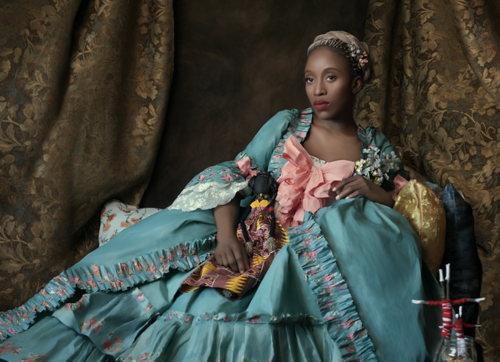
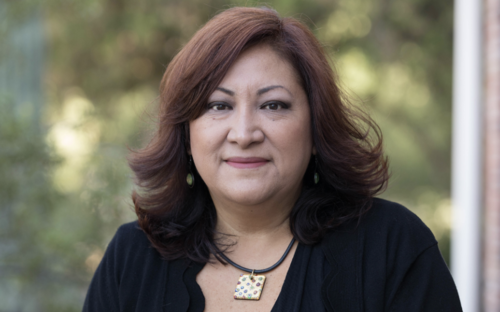
Latinx and the News Media in the U.S. – Bilingual and Bicultural Audiences in the Digital Age
Jessica Retis
Retis, Ph.D., is an Associate Professor in the School of Journalism and Affiliated Faculty with the Center for Latin American Studies, the Center for Border and Global Journalism, and the Human Rights Practice Program at the University of Arizona. From 2008 to 2019 she was an Associate Professor in the interdisciplinary Minor of Spanish-language Journalism and Master in Communications programs at California State University. Retis recently joined UA to help launch and lead the UA first bilingual journalism program. She has been appointed visiting scholar at New York University, University of Tokyo, Florida International University, City University London, London School of Economics, and the University of Westminster.
Retis holds a Major of Communications (University of Lima), a Masters of Latin American Studies (UNAM, Mexico) and a Ph.D. in Contemporary Latin America (Complutense University of Madrid). Her areas of research include international migration, diasporas, and the media, ethnic media, diversity and the media, and Latino media in Europe, North America and Asia. She is co-author of Latin Americans in London: Narratives of Migration, Relocation and Belonging (Palgrave, 2020), co-editor of The Handbook of diaspora, Media and Culture (Willey, 2019) and author of Media Spaces of Immigration in Madrid: Genesis and Evolution (OMCI, 2006).
This event was co-sponsored by The Latinx Project and organized by the Media Culture and Communication Department at New York University.

The Young Lords – A Radical History
Johanna Fernández and Denise Oliver-Velez
Fernández is the author of The Young Lords: A Radical History (UNC Press, February 2020), a history of the Puerto Rican counterpart of The Black Panther Party. She teaches 20th Century U.S. history and the history of social movements in The Department of History at Baruch College (CUNY). Dr. Fernández’s recent research and litigation have unearthed an arsenal of primary documents now available to scholars and members of the public. Her Freedom of Information Law (FOIL) lawsuit against the NYPD, led to the recovery of the “lost” Handschu files, the largest repository of police surveillance records in the country, namely over one million surveillance files of New Yorkers compiled by the NYPD between 1954-1972, including those of Malcolm X. She is the editor of Writing on the Wall: Selected Prison Writings of Mumia Abu-Jamal (City Lights, 2015). With Mumia Abu-Jamal, she co-edited a special issue of the journal Socialism and Democracy, titled The Roots of Mass Incarceration in the US: Locking Up Black Dissidents and Punishing the Poor (Routledge, 2014). Among others, her awards include The Fulbright Scholars grant to the Middle East and North Africa, which took her to Jordan, and a National Endowment for the Humanities Fellowship of the Scholars-in-Residence program at The Schomburg Center for Research in Black Culture of the New York Public Library. Professor Fernández is the writer and producer of the film, Justice on Trial: the Case of Mumia Abu-Jamal (BigNoise Films, 2010). She directed and co-curated, ¡Presente! The Young Lords in New York an exhibition in three NYC museums cited by The New York Times as one of the year’s Top 10, Best In Art. Her mainstream writings have been published internationally, from Al Jazeera to The Huffington Post. She has appeared in a diverse range of print, radio, online, and televised media including NPR, The New York Times, the Wall Street Journal, and Democracy Now!. Fernández is the recipient of a Bachelor of Arts in Literature and American Civilization from Brown University and a Ph.D. in U.S. History from Columbia University.
Oliver-Velez is currently a Contributing Editor at Daily Kos, where she writes on politics, history, and culture. She has been a political activist and community organizer for over 50 years – in the civil rights movement, women’s movement (featured in the documentary on second-wave feminism “She’s Beautiful When She’s Angry), AIDS and LBGTQ activism movement and was a member of both The Young Lords Party and The Black Panther Party in the late 1960s and early 1970s. She worked in community media and public broadcasting for many years and was a co-founder and program director of Pacifica’s first minority-controlled radio station, WPFW-FM, in Washington DC. She was the coordinator of The Corporation for Public Broadcasting’s (CPB) Minority and Women’s Training Grant Program and was the executive director of The Black Filmmaker Foundation. As a medical anthropologist, she has published ethnographic research as part of several HIV/AIDS intervention projects. She is a retired SUNY New Paltz adjunct Professor of Anthropology and Women’s Studies, honored as a Teacher of the Year by The College of Liberal Arts & Sciences in 2016. She lectures frequently on campuses across the U.S. and continues to organize.
Event Recap
On Thursday, February 13, historian and Baruch College professor Johanna Fernández presented her new book, The Young Lords: A Radical History (UNC Press, 2020) to a packed auditorium at the King Juan Carlos I Center. Afterward, she was joined by former Young Lord Denise Oliver-Velez for a discussion of the book, followed by Q&A. Below are some highlights of the event, including a live-streamed video. Many thanks to Alex Ruiz for the photos!

Seed/Unseed: Works by Vick Quezada (Opening)
Vick Quezada (they/them) will exhibit recent works related to their projects around Indigenous-Latinx hybridity and how material histories function in contested lands and particularly the Mexico-United States border. The exhibit will loop Quezada’s performance in El Paso, Texas along with sculptural works and documentation that elucidates the artist’s process and vision. The show will open to the public on January 31st, 2020, on view during building hours until May 15th, 2020.
Quezada’s works queer the archaeological. Their projects explore the material histories and consciousness of Indigenous-Latinx hybridity within Western culture. They use a variety of mediums including sculpture, photography, video, and performances, embodying ancient Nahuan rites to simultaneously make the obscured visible. Their artifacts delineate inherent systems of power and subjectivity in the Americas while transgressing “official” historical accounts. Quezada’s incorporation of natural elements; soil and flora, reference Indigenous beliefs that all beings are interconnected, that the spirit earth and the cosmology are one.

Ricanness – Enduring Time in Anticolonial Performance
A book presentation and talk had with Professor Sandra Ruiz
Moving between theatre, experimental video, revolutionary protest, photography, poetry, and durational performance art, Ruiz merges the philosophical, social, and psychic at the site of non-linear aesthetic practices. In doing so, the author argues that Ricanness operates as a continual performance of bodily endurance against U.S. colonialism, unfolding via aesthetic interventions in time. In this reading, Ruiz challenges the colonization of time and our normative assumptions of negation, incompletion, exhaustion, endurance, and violence, alongside moments of pleasure, desire, and redemption. A theorization of Ricanness, as the author expresses, supplies a relational way to imagine, dream, and construct alternate forms of existence under colonialism, across bodies of water and beyond the annexation of land.
This event was hosted by The Department of Performance Studies and co-sponsored by CSGS and CLACS.
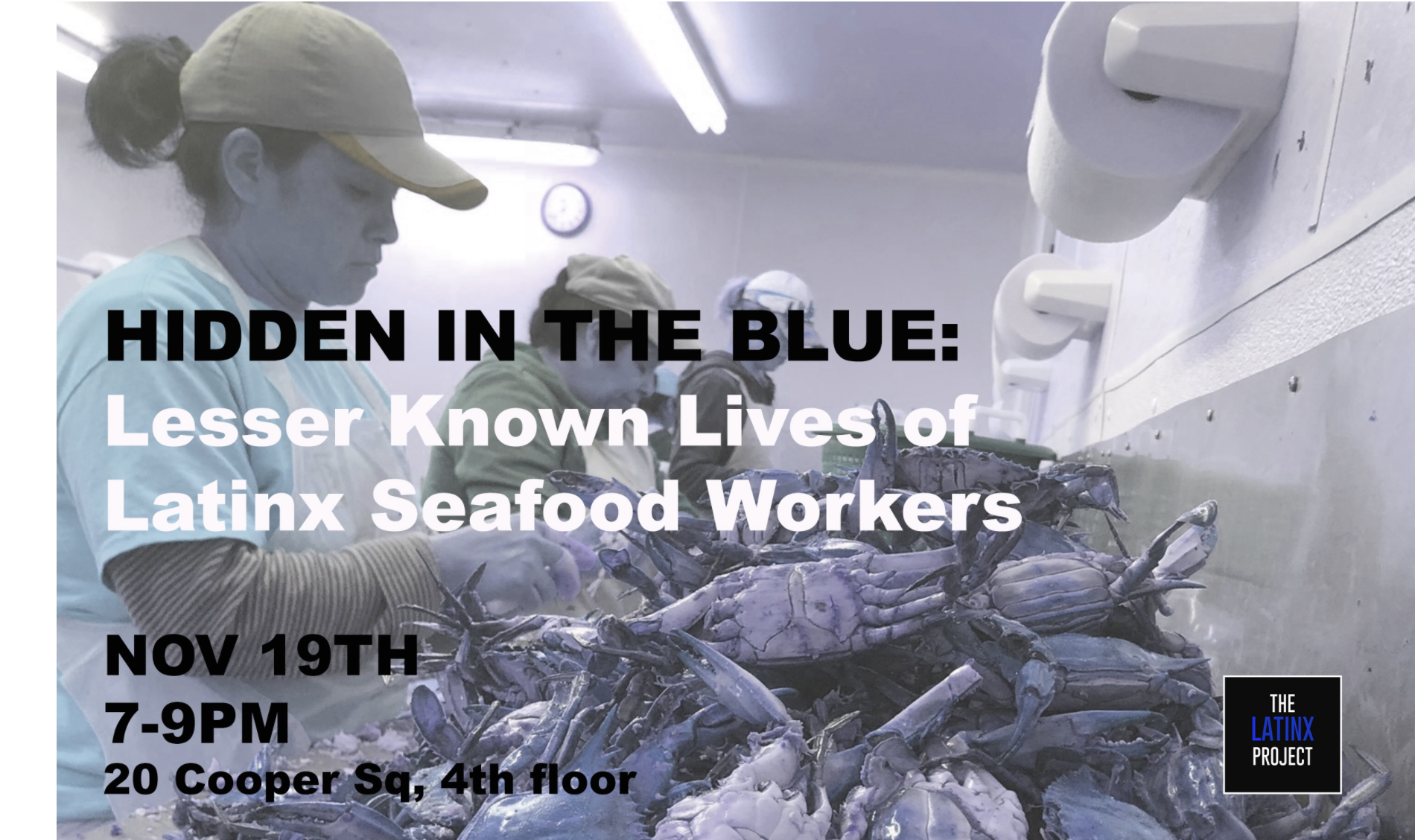
Hidden in the Blue – The Lesser Known Lives of Latinx Seafood Workers
This lecture examined the lives and histories of Latinx seafood worker communities along the coast of the U.S. Northeast throughout the 20th and 21st centuries. Focusing on industries related to desired commodities such as sea cucumbers and lobster, it argues that Latinx laborers -both citizen and migrant- have historically shaped patterns of aquaculture as well as agriculture in this country. In the process, these workers have experienced various forms of neglect and invisibility ranging from occupational safety hazards to broken promises in guestworker contracts to xenophobic protests of their presence by residents of seaside towns.
Lori A. Flores is an Associate Professor of History at Stony Brook University, where she teaches courses on the histories of Latinx people in the United States, American labor and immigration, the U.S. West, and the U.S.-Mexico borderlands. She is the author of Grounds for Dreaming: Mexican Americans, Mexican Immigrants, and the California Farmworker Movement (Yale, 2016), which was named Best History Book by The International Latino Book Awards and Best First Book by The Immigration and Ethnic History Society. She is also the new co-editor of the completely-revised 4th edition of The Academic’s Handbook, which offers valuable advice essays from a diverse array of scholars and will be published by Duke University Press in 2020.
Event Recap
On November 19th, 2019, NYU’s Latinx History working group hosted its second public lecture event. Stony Brook professor Lori A. Flores presented her research into Latinx seafood workers in the Northeast U.S. A forthcoming book will explore everything from Puerto Rican and Mexican guest-workers in the mid-20th century to the key role of Latinx migrant workers from Central America in the boom of the sea cucumber industry in Maine. The latter was the subject of Flores’ presentation. As far as the 1990s, Latinx migrant workers have taken on the hazardous job of sea cucumber processing.
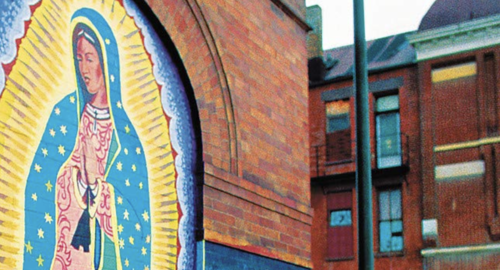
Barrio America – How Latino Immigrants Saved the American City
A.K. Sandoval-Strausz, Director of Latinx Studies, Pennsylvania State University
This was sponsored by Metropolitan Studies, The Latinx Project, NYU Collaborative on Global Urbanism, and Hemispheric Institute.

Being Brown – Sonia Sotomayor and the Latinx Question by Lazaro Lima
A book launch and conversation with Lázaro Lima and Cristina Beltrán.
In the book Being Brown, Lázaro Lima frames the conditions that have led to the unrelenting assault on Latinx lives, communities and histories by contrasting our historical moment with the storied biography of the country’s first Latina Supreme Court Justice, Sonia Sotomayor. In a moment of state-sanctioned violence against Latinxs, and previously unimaginable “blood and soil” Nazism, this conversation discussed what we stand to lose when we allow democratic values to be trampled through forms of symbolic inclusion that do little to redress systemic exclusion and democratic state failures under neoliberal austerity.
Lázaro Lima and Cristina Beltrán
Lima is a Professor of Latinx Studies at Hunter College, CUNY, in the Department of Africana, Puerto Rican, & Latinx Studies. Lima is the author of The Latino Body: Crisis Identities in American Literary and Cultural Memory (NYU Press, 2007), Ambientes: New Queer Latino Writing, with Felice Picano (U of Wisconsin Press, 2011), and Being Brown: Sonia Sotomayor and the Latino Question (U of California Press, 2019). His documentary film-work includes Las Mujeres: Latina Lives, American Dreams (Deronda Productions, 2016), and the award-winning Rubí: A DACA Dreamer in Trump’s America (Deronda Productions, 2019). Lima’s Twitter, @LazLima
Beltrán is an Associate Professor and Director of Graduate Studies in the Department of Social & Cultural Analysis at New York University. She is author of The Trouble with Unity: Latino Politics and the Creation of Identity (Oxford University Press), which received numerous awards, including the Casa de la Américas Prize for the best book on Latinos in the United States. Her research has appeared in the journals Political Theory, Aztlán, Politics & Gender, Contemporary Political Theory, Political Research Quarterly, and the Du Bois Review as well as various edited volumes. Beltrán is co-editor of the journal Theory & Event.
Event Recap

Afro Syncretic (Opening)
Afro Syncretic presents the work of nine artists foregrounding the African roots of the Latinx diaspora. Collectively, the works center the vibrancy of diasporic Blackness within Latinx culture urging viewers to confront dominant narratives of what it means to be Latinx.
These artists are part of a contemporary reassessment of African influences in Latinx communities that rejects trends to separate and undermine blackness. They provide pathways to appreciate the richness of contemporary Afro-syncretic interventions, breaking through dominant views of history and inspiring alternative futures.
Some of the works reference Afro-derived music, food, and religious practices. Others recreate memories that inspire new narratives about familiar, quotidian environments like a Nuyorican apartment while addressing the displacement of longtime residents. Others disrupt dominant beauty standards by challenging consumer goods. Some artists invite viewers to reflect on key social and political issues of the times by emphasizing the policing of black bodies and the problem of eroticizing and romanticizing a colonial past.
Together, these artists challenge viewers into a dialog that deliberately pays attention to African diasporic traditions in vernacular culture and their historical and living references. Most importantly, Afro Syncretic makes clear that visual artists are central to conjuring a social imaginary that centers Afro-Latinx in popular culture and all facets of life.
Artists
Elia Alba, Tiffany Alfonseca, Lucia Hierro, David Antonio Cruz, Patricia Encarnación, Fabiola Jean-Louis, Carlos Martiel, Joiri Minaya, and Melissa Misla.
Curator Yelaine Rodriguez introduces Afro-Syncretic on opening night, video by JP Infante
Curator-led Tours
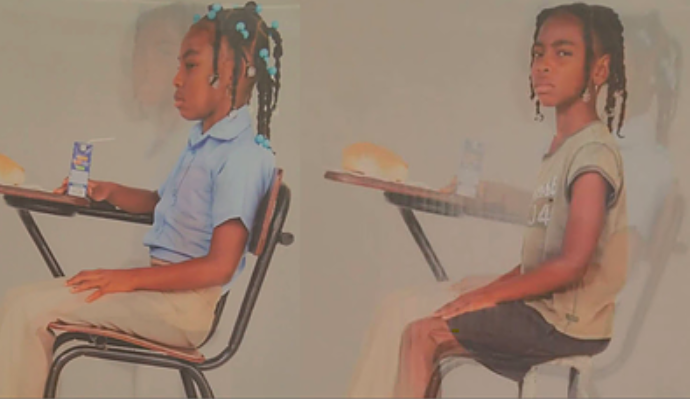
Dropping Knowledge with Black Latinas Know Collective
In this interactive roundtable, members of the newly formed Black Latinas Know Collective (BLKC) discussed the BLKC Statement and the ways in which Black Latina scholars and their knowledge productions challenge and re-think Latinx Studies, Black Studies, Latin American and Caribbean Studies, and traditional social science and humanities disciplines.
Amarilys Estrella is a Ph.D. candidate in Anthropology at New York University. Her dissertation research examines the role of human rights law and discourse in transnational activism against anti-Black racism. She holds a Master’s in Latin America and Caribbean Studies from New York University. Amarilys is a 2018-2019 Public Humanities Fellow, working closely with the New York City-based collective We Are All Dominican (WAAD) in designing a transnational campaign to address the denationalization of Dominicans of Haitian descent in the Dominican Republic, as well as the global anti-immigrant and anti-Black sentiment. Prior to her doctoral studies, she was the Program Officer for Haiti and the Dominican Republic at American Jewish World Service, an international human rights organization
Dr. Danielle Pilar Clealand received her Ph.D. from the University of North Carolina at Chapel Hill in Political Science and joined the faculty at Florida International University in 2012. Her research examines comparative racial politics, group consciousness, black public opinion and racial inequality with a focus on the Spanish-speaking Caribbean and the United States. Dr. Clealand’s book, The Power of Race in Cuba: Racial Ideology and Black Consciousness During the Revolution, -winner of the 2018 Best Book Award from the Race, Ethnicity and Politics Section of the American Political Science Association- examines the racial ideology and the institutional mechanisms that support racial inequality in Cuba as well as Black public opinion. The book outlines structural racism the island and the experiences of discrimination that create a foundation for black solidarity. Through survey, ethnographic, and interview data, The Power of Race in Cuba draws from the many Black spaces on the island, both formal and informal, to highlight what constitutes black consciousness in Cuba.
Dr. Clealand’s current projects focus on racism and Black consciousness in Puerto Rico and political attitudes and identity among Afro-Latinos in the United States. Dr. Clealand teaches courses such as Caribbean Politics, Cuban Politics, Black Politics in the Americas, Latino Politics, and Race and Politics in the United States. She is the recipient of the McKnight Junior Faculty Fellowship for the 2017-2018 academic year. Before joining the faculty at Florida International University, she was a visiting fellow at the Department of African American Studies at Princeton University.
Professor Zaire Zenit Dinzey-Flores is an Associate Professor in the Department of Latino and Caribbean Studies and the Department of Sociology. Her research focuses on understanding how urban space mediates community life and race, class, and social inequality. She uses an interdisciplinary lens (sociology, urban planning, public policy), mixed-method approaches, and often a comparative Caribbean-U.S. framework, to investigate the processes that cement the built environment and unequally distribute power. She is particularly interested in housing and urban residential (housing and neighborhood) design: the underlying logic and policies that drive design, how design is interpreted, used, and experienced, and the consequences for inequality among communities and residents of cities. Her book, Locked In, Locked Out: Gated Communities in a Puerto Rican City (University Of Pennsylvania Press: 2013), winner of the 2014 Robert E. Park Award of the Community and Urban Sociology Section (CUSS) of the American Sociological Association and an Honorable Mention of the 2014 Frank Bonilla Book Award of the Puerto Rican Studies Association, examines race and class inequality as they are recreated, contained, and negotiated through urban policy, the physical built environment, and community gates in private and public housing.
Dinzey-Flores is currently working on two projects: the first is a mixed-method examination of how race is articulated in residential real estate practices in demographically changing neighborhoods in Brooklyn, NY; the second, look at the transatlantic circulation of housing planning and design ideals in the middle of the 20th Century. She is also collaborating on a mobile data project seeking to understand racial segregation as it occurs in motion and a mixed-media project on construction in the Caribbean.
Miriam Jiménez Roman, Executive Director of Afro Latin@ Forum; I’ve spent most of my life trying to reconcile the many spaces I inhabit as a Black Puerto Rican woman. Raised in the projects in East Harlem during the 1960s, I received all of my formal education in public schools and universities (mostly at Binghamton University) at a time when race and ethnic studies were being imagined and demanded. I owe my less formal but likely strongest intellectual, professional and personal development to the African diasporic community of scholars and activists whose work continues to inspire me. I taught my first course on the African presence in the Americas in 1991 while employed as exhibitions coordinator at The Schomburg Center for Research in Black Culture and where I subsequently served as assistant director of The Scholars in Residence program. Questioning accepted wisdom and pushing established boundaries between theory and practice, scholarship and activism, Latinidad and Blackness has permitted me to contribute to a broader acknowledgment of the Black Latin@ experience, most notably through the advocacy work of the AfroLatin@ Forum (2005) and the publication of The AfroLatin@ Reader: History and Culture in the United States (2010). I am also a co-editor of the AfroLatin@ Diasporas book series at Palgrave.
Maritza Quiñones, Academic Advisor, Anthropology, the University of Illinois at Urbana-Champaign; I am a Black Latina. I am originally from Carolina, Puerto Rico, a town with a strong Black history and silent stories. I am a first-generation college graduate who came to the U.S. mainland in 1980 (something). My experiences with race, gender, sexuality, and language in Puerto Rico and later at the university, in Indiana, led me to write. Silence and secrecy were for ever-present in my life, and writing became a way to share my voice. While in college, U.S. Black and Caribbean women writers helped me understand racism, violence, beauty, love, and the power of telling our stories as a form of pedagogy. As a graduate student, I wrote for an audience, who like me, was not represented in books. From Trigueñita to Afro-Puerto Rican: Intersections of the racialized, gendered, and sexualized body in Puerto Rico and the U.S. mainland represents a fusion of my experiences, academic journey, and hope for continued sharing. I am a proud Salsa music aficionado and a devout mother of two young adult Black Latinos.
Jomaira Salas Pujols, Ph.D. Student, Sociology, Rutgers University; I am a Black Latina and the daughter of working-class Dominican immigrants. I was raised by generations of Dominican women who showed me what love, care, laughter, and accountability look like in practice. I am committed to centering, listening, and learning from other Black girls and girls of color who challenge oppression in their everyday lives. As a Ph.D. student in Sociology at Rutgers University, I study the visible and invisible ways in which women of color resist and unsettle educational institutions. I also create social justice-centered curriculums and training on college access for local non-profit institutions. I conduct research on Afro-Latin@ racial identity and The Census through the Afro-Latin@ Forum and serve as a special representative on the board of trustees of my alma mater, Bryn Mawr College. I love swimming, reading, yoga, andThe Real Housewives of Atlanta.
Vanessa V. Valdés, Director of Black Studies, City College, CUNY; I am the director of the Black Studies Program at The City College of New York-CUNY. Born and raised in New York City to Black Puerto Rican parents, I am a graduate of Yale and Vanderbilt Universities. My research focuses on the cultural production of peoples of African descent throughout the Americas: the United States and Latin America, including the Caribbean and Brazil. I am the editor of The Future Is Now: A New Look at African Diaspora Studies (2012) and Let Spirit Speak! Cultural Journeys through the African Diaspora (2012). I am the author of Oshun’s Daughters: The Search for Womanhood in the Americas (2014) and Diasporic Blackness: The Life and Times of Arturo Alfonso Schomburg (2017). I am the series editor of Afro-Latinx Futures, a book series dedicated to centering Blackness as a theoretical frame in scholarly monographs and edited collections in the humanities and social sciences.
Dr. Omaris Z. Zamora is a transnational Black Dominican Studies scholar. Her research interests include Black and Latino Studies, transnational Hispanic Caribbean cultural production as they relate to race, gender, and sexuality. Her current book project tentatively titled, AfroLatina (Trance)formations: Poetics of Black Embodied Archives and Feminist Epistemologies engages the theoretical formation of AfroLatina feminist epistemologies through an analysis of transnational Dominican women’s narratives in literature, performance, and social media. Zamora has presented her research at several conferences, lectures, and roundtables. Her work has been published in Latinx Talk and Label Me Latina/o, among others and she has been featured on NPR’s Alt. Latino podcast episode “Reggaeton in the Age of #MeToo”. Dr. Zamora is a spoken-word poet and she fuses her poetry with her scholarly work as a way of contributing to a black poetic approach to literature and cultural studies.
Event Recap
On November 5th, 2019, the Black Latinas Know Collective dropped knowledge on their work, the field of Latinx Studies, and the need for a “collectivity” of Black Latinas that does not privilege individual voices. The conversation revolved around issues of epistemology, and how their positionalities as Black Latinas inform their work, the questions they focus on, and how their work reveals gaps in Latinx and Black Studies, as well as their respective disciplines. Speakers also addressed the reasons why the collective came together, and shed light on terminologies, such as the use of Afro-Latina or Black-Latina and their use of blogs and social media to create community. Check https://www.blacklatinasknow.org/ to learn more about their work and follow #BlackLatinasKnow for some of the insights dropped by this amazing collective.

Diasporican Poets Series – Aurora Levins Morales
A poetry series co-sponsored by The Latinx Project, Borders and Diasporas, The Department of English, and The Department of Spanish and Portuguese at New York University. The first in the series was a reading and conversation with Aurora Levins Morales.
Levins Morales is a Puerto Rican Ashkenazi Jewish feminist writer, historian, and activist. She is a member of The Jews of Color Caucus, an autonomous group working in partnership with Jewish Voice for Peace; is on the advisory board of JVP, and is a member of The JVP Artists’ Council.
For more information, contact Professor Urayoán Noel at tun202@nyu.edu.

Diasporican Poets Series – Raquel Salas Rivera
A poetry series co-sponsored by The Latinx Project, Borders and Diasporas, The Department of English, and The Department of Spanish and Portuguese at New York University. The first in the series was a reading and conversation with Raquel Salas Rivera.
Salas Rivera (Mayagüez, 1985) is a Puerto Rican poet, translator, and literary critic. They are the 2018-19 Poet Laureate of Philadelphia and the inaugural recipient of the Ambroggio Prize and The Laureate Fellowship, both from The Academy of American Poets. They have received fellowships and residencies from The Sundance Institute, The Kimmel Center for Performing Arts, The Arizona Poetry Center, and Canto Mundo. From 2016-2018, they co-edited the literary journal The Wanderer. In 2017, they co-edited a series of bilingual broadsides of contemporary Puerto Rican poets, which later became the anthology Puerto Rico en mi corazón. They are also the author of seven chapbooks and four full-length poetry books. Their first two books, Caneca de anhelos turbios (Editora Educación Emergente) and tierra intermitente/intermittent land (Ediciones Alayubia), were published in Puerto Rico. Their third book, lo terciario/the tertiary, was on the 2018 National Book Award Longlist and won the 2018 Lambda Literary Award for Transgender Poetry. Their fourth book, while they sleep (under the bed is another country), was published by Birds, LLC in 2019. They received their Ph.D. in Comparative Literature and Literary Theory from the University of Pennsylvania. Raquel loves and lives for Puerto Rico, Philadelphia, and a world free of white supremacy.
For more information, contact Professor Urayoán Noel at tun202@nyu.edu.

The Task of the Choteador – A Conversation with Jacqueline Loss
A celebratory launch of Jacqueline Loss’s original translation of Jorge Mañach’s essay “Inquiry into Choteo.” The event featured a lively discussion between Professor Loss, and New York University’s Ana Dopico and Alexandra T. Vazquez, around questions of translation and feminism, humor and performativity, the anti-colonialisms waged in everyday life, and the pressure studies of race and gender offer to Mañach’s provocative work.
Jacqueline Loss (Ph.D., 2000, Comparative Literature, University of Texas-Austin) teaches Latin American and Comparative Literary and Cultural Studies. Her publications include Dreaming in Russian: The Cuban Soviet Imaginary (University of Texas Press, 2013) and Cosmopolitanisms and Latin America: Against the Destiny of Place (Palgrave, 2005). She is the co-editor with José Manuel Prieto of Caviar with Rum: Cuba-USSR and The Post-Soviet Experience (Palgrave 2012) and with Esther Whitfield of New Short Fiction from Cuba (Northwestern University Press, 2007). In addition, she served as an advisor for Literature from the Axis of Evil: Writing from Iran, Iraq, North Korea, and Other Enemy Nations (New Press, 2006). Among the writers she has translated into English are Víctor Fowler Calzada, Antonio Álvarez Gil, Ernesto René Rodríguez, Jorge Miralles, Anna Lidia Vega Serova, and Armando Suárez Cobián. Her critical essays have appeared in Nepantla: Views from South, Chasqui, Latino and Latina Writers, Mandorla, New Centennial Review, La Habana Elegante, Bomb magazine, La Gaceta (Cuba), Kamchatka (Spain), Cuadernos del Centro de Estudios Latinoamericanos and Revista de Estudios Latino Americanos (Poland), among others. Loss is also in charge of the “Translation Magic” column of Cuba Counterpoints, for which she serves on the advisory board and is working on digital humanity and documentary project around Cuba at finotype.org.

Latinx Interventions – A Wikipedia Edit-a-thon
Wikipedia edit-a-thons have emerged as a powerful tool for communities that are underserved by the lack of diversity among Wikipedia content editors. This “Latinx intervention” is a collaboration between NYU Libraries and The Latinx Project at NYU, with support from Wikimedia NYC. The goal is to educate and train interested individuals in the editing and contribution process of Wikipedia entries. All experience levels welcome and ideas for non-existent/underdeveloped Wiki entries are encouraged. Laptops will be available, and refreshments provided.
Event Recap
Collaborating alongside NYU Librarians we hosted the first Latinx Wikipedia Edit-a-thon at NYU. It was a success with 3 Articles Created, 17 Articles Edited, 103 Total Edits, and 32 new Editors. You can view the statistics here on the event’s Wikipedia Dashboard. Based on the success of this event, we aim to host this a Wiki Edit-a-thon yearly. Our event page lists more ideas for articles that need creating/editing here, and if you’d like to learn how to edit Wikipedia on your own, the Art + Feminism website is an excellent resource.

Our Curated Scene – DIY Publishing, Zines and Archives
Join us for a panel discussion Moderated by Professor Cristel Jusino Díaz, on the DIY spaces being created to counter Latinx invisibility in media, art, and publishing worlds.
“DIY" (Do It Yourself) publishing has created an outgrowth of Latinx cultural production calling to question the overwhelming invisibility of Latinx writers and creators in many arenas of published and digital media. If the materials exist, why are they not published by traditional outlets and publishing houses? For example, Zine Fairs have become a platform for independent publishers- creating new micro-economies for artists while also providing space for the distribution of emerging artists, writers, and makers.
What can we learn from these writers, artists, curators, and bookmakers about the importance of independent publishing and the archives that have naturally grown from this work? Artist and founder of PreCog Mag Florencia Escudero, Smithsonian curatorial assistant and Puro Chingon Collective cofounder Claudia Zapata, and Luz Magdaleno of Brown n Proud Press will be in conversation.
Florencia Escudero was born in Singapore in 1987 and grew up in Mendoza, Argentina. She lives and works in Brooklyn, New York. Escudero received a Master in Fine Arts in Sculpture from the Yale University School of Art in 2012 and a Bachelor of Fine Arts from The School of Visual Arts in 2010. Her works have been exhibited at Instituto Cervantes, New York, NY, The Steuben Gallery, Pratt Institute, New York, NY, Selena Gallery, Brooklyn, NY, and Etta Project Space, Seoul, Korea, among other venues. She was a 2016 year-long Artist in Residence at the Loisaida Center, New York, NY, and has also completed residencies at Art Farm, Marquette, NE, and Pilchuck Glass School, Seattle, WA. Works by Escudero have been discussed in Editorial Magazine, Aether Magazine, The Art Newspaper, Hyperallergic, and The American Reader. She is an editor and founder of Precog Magazine. Escudero’s Instagram, @floescu
Claudia Zapata is a doctoral candidate in Southern Methodist University’s RASC/a: Rhetorics of Art, Space, and Culture: Ph.D. Program in Art History. She received her Bachelor of Arts and Master of Arts from the University of Texas in Art History, specializing in Classic Maya Art. Her research interests include curatorial methodologies of identity-based exhibitions, Chicanx and Latinx art, digital humanities, people of color zines, and designer toys. From 2010 to 2014, she served as the Curator of Exhibitions and Programs at the Mexic-Arte Museum in Austin, Texas. Zapata has curated over 30 exhibitions at the Mexic-Arte Museum and other Texas institutions, including A Viva Voz: Carmen Lomas Garza (2010), Sam Coronado: A Retrospective (2011), Death to Dollars: The Commercialization of Day of the Dead (2011), and Fantastic & Grotesque: José Clemente Orozco in Print (2014). Her recent projects include co-founding the Latinx art collective, Puro Chingón Collective in 2012. Within this experimental art group, she develops art zines, prints, apparel, design, and art toys. Claudia has published articles in Panhandle-Plains Historical Review, Jollas: Journal of Latino/Latin American Studies, and the Aztlán: A Journal of Chicano Studies. She is currently pursuing her dissertation project, “Chicano Art is Not Dead: Politics on Display within Major U.S. Exhibitions.” From 2018-2019, Claudia is the Latino art curatorial assistant at the Smithsonian American Art Museum in support of the exhibition ¡Printing the Revolution! The Rise and Impact of Chicano Graphics, 1965-Now.
Luz Magdaleno Flores is a Queer Chicana storyteller, layout editor, content creator, and photographer. Born and raised in Oxnard, CA, she has been living and organizing in Chicago, IL for the past six years. She has a Bachelor of Arts in Journalism and Gender Studies from Roosevelt University, has self-published La Pera Chapbook and Bajito & Suavecito Foto Zine, is co-founder of SERIO? Zine has been published through Reverb LP, Chicago’s South Side Weekly, Canada’s Broken Pencil Magazine, Xicanation.com, and her photography has been displayed in San Francisco’s Galeria de la Raza and NYC 7th Annual Zine and Self Published Photo Book Fair. As a layout designer, Luz has created Love Notes from the Kitchen for Necia Media Collective, From My Lips Chapbook by Lupita Carrasquillo, Sana Sana by Marisol Ceron, and has contributed and designed On Struggling Queerness Anthology, Secretos: From One Hoe to Another, On Struggling Relationships Anthology, Home Anthology, and Cuentos de Gringolandia: Stories From the Other Side in collaboration with Brown and Proud Press and Xicx Zine Collective. Current projects include co-hosting Radio Luzifer, a bilingual horror podcast, working as a domestic violence resource advocate, and organizing as lead editor for Brown and Proud Press. Flores’ Instagram, @lightofyourvida
Cristel M. Jusino Díaz completed her Ph.D. in The Department of Spanish and Portuguese at New York University. She holds a Masters in Spanish from New York University in Madrid and a Bachelor of Arts in Latin American Studies from the Universidad de Puerto Rico-Recinto de Río Piedras. Her dissertation, “Balance Prepóstumo: Queer Temporality and Latin American Literature, 1983-1993”, focuses on questions of queer temporality in Latin American literature written during the HIV-AIDS crisis. Díaz is the Assistant Director of Student Affairs at The Graduate School of Arts and Science at New York University.
Event Recap
On October 8, 2019, The Latinx Project hosted “Our Curated Scene: DIY Publishing, Zines & Archives,” a panel discussion organized in conjunction with the exhibit el zine: contemporary underground archives, which is currently on display at the Department of Social and Cultural Analysis at NYU.
This event included presentations by each of the panelists. Claudia Zapata of Puro Chingón Collective spoke first, narrating the history of the group, which was formed in 2012 following the creation of the arts publication ChingoZine. Zapata went to discuss several subsequent initiatives that the collective has organized, such as “The Puro Chingón Social Club” and the Pachanga Latino Music Festival.
Next, Florencia Escudero delved into her role as founder and editor of Precog Magazine, which focuses on science, technology, cyber culture, and feminism. Luz Magdaleno Flores, lead editor of Brown and Proud Press, then gave a presentation on her community work in Chicago, followed by a conversation moderated by Cristel M. Jusino Díaz, Assistant Director of Student Affairs at the Graduate School of Arts and Science at NYU.
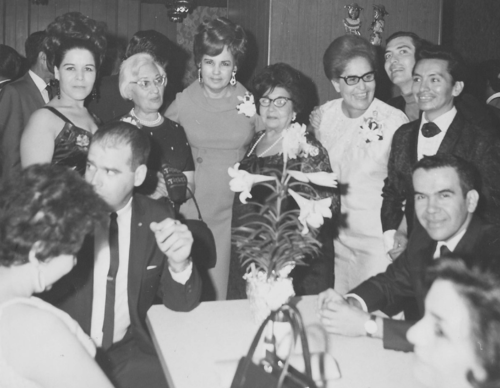
Cocina Confidential – The Cultural History of a Los Angeles Restaurant
This talk examined place-making in the Los Angeles neighborhood of Echo Park through a Mexican restaurant that became an “urban anchor” for its owner, employees, and customers. Unlike residents of other L.A. ethnic enclaves, Echo Park residents occupied a geographic and cultural crossroads. The community’s complex economic, racial, and ethnic history transcends the conventional narrative of white flight, disinvestment, and segregation.
This was a lecture by Natalia Molina, Professor of American Studies and Ethnicity, History, Latinx Studies, Immigration, Gender, Urban Studies, & Public Health at the University of Southern California. Professor Molina’s work lies at the intersections of race, gender, culture, and citizenship.

The Future of Media is Latinx – A Conversation on Race, Ethnicity and Global Media
This panel, featuring Vanessa Erazo, Jillian Báez, and Carlos Gutiérrez; was part of the Obitel Conference; a place for conversations around Internet Distributed Television in Ibero-American and U.S. Hispanic Media.
Panelists
Vanessa Erazo, Jillian Báez, Carlos Gutiérrez
Báez specializes in Latina/o media, audience studies, transnational feminisms, and media literacy. Dr. Báez is the General Editor of WSQ (formerly Women’s Studies Quarterly). Her research has been supported by The Ford Foundation and Social Science Research Council. She teaches a variety of undergraduate and graduate courses at The College of Staten Island. These courses include Theories of Communications, Media Audiences, Media and the Margins, Media Industries, History of Print Media, Latina/o Media, Film and Media Research Analysis, and Introduction to Women’s, Gender, and Sexuality Studies. Prior to her appointment at the College of Staten Island, Dr. Báez was a Postdoctoral Fellow at The University of Michigan and a Visiting Assistant Professor at Williams College.
Erazo is a journalist and film programmer. She has worked in various capacities for film festivals in San Francisco, Mexico City, and New York. After receiving a Master's of Arts in Latin American Studies from New York University, she served as the Documentary Programmer at the New York International Latino Film Festival. For the last six years, she has led and shaped Remezcla’s Film and TV coverage as an editor. She is also a Co-Founder of Cinelandia, an online guide to Latino films playing across the U.S. She has served on the jury of The Palm Springs International Film Festival, Mendocino Film Festival, Cinema Tropical Awards, and Princess Grace Foundation Film Awards. Erazo’s work has appeared on Remezcla, Indiewire, in The New York Times and on NPR.
Gutiérrez is the co-founder and executive director of Cinema Tropical, The New York-based media arts non-profit organization that has become the leading presenter of Latin American cinema in the U.S. As a guest curator, he has presented several film/video series at different cultural institutions, including The Museum of Modern Art, Film at Lincoln Center, The Guggenheim Museum, BAMcinématek, and Anthology Film Archives, among others. In 2007, he co-curated the 53rd edition of The Robert Flaherty Film Seminar. He is a contributing editor to BOMB Magazine, a member Board of Directors of Film Forum, and has served as a member of the jury for various film festivals including Morelia, SANFIC, Seattle, Margaret Mead, DocsMX, and Austin’s Cine Las Americas. Gutiérrez has served as both expert nominator and panelist for The Rockefeller Fellowship Program for Mexican Film & Media Arts, The Sundance Documentary Fund, The Tribeca Film Institute’s Latin America Media Arts Fund, and The Rolex Mentor and Protégé Arts Initiative.

The Supper Club – Reflections on the Landscapes of Latinx Art
How do Latinx artists supersede narrow categories of identification? How are they anchoring race/class and foregrounding the voices of Black and Brown Latinx artists and experiences? How is the Latinx art movement expanding the conversation on Latinidad? The speakers for this edition of The Supper Club include, Elia Alba, Juana Valdés, Naiomy Guerrero, and Guadalupe Maravilla.
Artists
Elia Alba was born in Brooklyn, New York. She received her Bachelor of Arts from Hunter College in 1994 and completed the Whitney Museum Independent Study Program in 2001. She has exhibited throughout the United States and abroad. Those include The Rhode Island School of Design Museum; Stedelijk Museum, Amsterdam; The Science Museum, London; ITAU Cultural Institute, Sao Paolo; National Museum of Art, Reina Sofía, Madrid and the 10th Havana Biennial. She is a recipient of numerous awards and residencies, for example, Studio Museum in Harlem Artist-in-Residence Program in 1999; New York Foundation for the Arts Grant, Crafts 2002 and Photography 2008; Pollack-Krasner Foundation Grant, 2002 and Joan Mitchell Foundation Grant 2002 and 2008; Lower Manhattan Cultural Council (LMCC) Workspace Program, 2009, and Recess Analog, 2012. Her work is in the collection of the Smithsonian Museum of Art, El Museo del Barrio, Lowe Art Museum to name a few. For the past 6 years, she has been working on a project titled “The Supper Club. The project brings together artists, scholars, and performers of diasporic cultures, through photography, food, and dialogue to examine race and culture in the United States. A book on The Supper Club, produced by The Shelley & Donald Rubin Foundation and published by Hirmer is scheduled for Spring 2019. She is currently Artist-in-Residence at The Andrew Freeman Home in the Bronx.
Juana Valdés is a multi-disciplinary artist whose work traces, recollects, and records her own personal experience of migration. Her artwork is informed by her Afro-Cuban ethnicity and the experience of growing up in America. Throughout her career, Valdés has participated in a range of exhibitions and residencies most currently at the European Keramic Work Center in the Netherlands (2012), the Jamaica Center for Arts and Learning (2009), the Artist Residency at the Center for Book Arts (2007), and the Smack Mellon Studio Program (2004). Past exhibitions include a solo show at SENSEI Gallery as part of the SENSEI Exchange Series Part 008: In the Fold in New York (2013), and traveling exhibitions Multiplicity: Contemporary Ceramic Sculpture (2007-08) and Multiple, Limited, Unique: Selections from the Permanent Collection of the Center for Book Arts (2011-2013).
Guadalupe Maravilla is a transdisciplinary artist who was part of the first wave of undocumented children to arrive at the United States border in the 1980s from Central America. In 2016, as a gesture of solidarity with his undocumented father—who uses Maravilla as his last name in his fake identity—Irvin Morazan changed his name to Guadalupe Maravilla. As an homage to his own migratory history, and to that of others, Maravilla makes work that acknowledges the historical and contemporary contexts of immigrant culture, notably belonging to Latinx communities. Maravilla gained notoriety for his performances which are expansive and immersive, incorporating choreographed rituals, hand-made costumery, fusion music, smell, theatre, and audience participation. He currently lives in Brooklyn, New York, and Richmond, Virginia, where he is an Assistant professor at VCU. He received his Bachelor in Fine Arts from the School of Visual Arts, and his Master in Fine Arts from Hunter College in New York.
Naiomy Guerrero is a Dominican-American art history scholar and arts equity advocate. She was raised traveling between the Bronx, Washington Heights, and the Dominican Republic. Her research focuses on highlighting contemporary Latinx artists born or long living in the U.S., their contributions to the cannon of U.S. art history, and development of the Latinx art market. Guerrero’s research has been shared by NPR Latino, Artsy, and Teen Vogue. Guerrero is the inaugural curatorial fellow of the Pérez Art Museum Miami’s Diversifying Art Museum Leadership Initiative. The two-year fellowship, endowed by the Walton Family Foundation and the Ford Foundation, aims to offer curatorial training to young professionals from historically underrepresented groups in curatorial and museum leadership.
The Shelley & Donald Rubin Foundation believes in art as a cornerstone of cohesive, resilient communities and greater participation in civic life. In its mission to make art available to the broader public, in particular to underserved communities, the Foundation provides direct support to and facilitates partnerships between, cultural organizations and advocates of social justice across the public and private sectors. Through grantmaking, the Foundation supports cross-disciplinary work connecting art with social justice via experimental collaborations, as well as extending cultural resources to organizations and areas of New York City in need.
Event Recap
Our panel Tuesday, -The Supper Club – Reflections on the Landscape of Latinx Art- gave us a chance to discuss Elia Alba’s important book. The panel with artists Juana Valdes and Guadalupe Maravilla, and curator Naiomy Guerrero opened up the conversation on how Alba’s Supper Club was groundbreaking because it gave space to an intergenerational group of artists with a spectrum of racial, sexual and ethnic identities to talk about the issues in their respective and collective art worlds. These safe and welcoming spaces for intergenerational conversations among artists of color are indeed rare.
Juana Valdes then turned the conversation to the term Latinx and what she calls it’s “X-factor.” “The “X” in Latinx becomes more than a way to hold a place/space that’s non-gender binary but also a place to hold other “ness.” It allows for the Afro or Black, Indigenous, Chinese or what “other” makes up the other part of the Latino ethnicity, she says. She also shared some artwork where she uses bone china to discuss cultural memory, race, labor, and displacement.
Then native New Yorker and art world maverick Naiomy Guerrero visiting from the Perez Art Museum in Miami shared a poem with us alluding to frustrations about the moral schisms of working in the art world especially considering our current political state of affairs. Below is an excerpt.
“I think abt the kind of freedom required to put your bare foot on the back of my arm rest the way that woman did on my flight from O’hare. Before you ask, yes, she was. i miss the block. i wanna hug it the way pushers do even on those nights where the temperature dips below zero like the cucharon do when mamis trynna get the asopao out. I sit in curatorial meetings discussing exhibition opening and closings and my mind drifts off to the 3,000 children in the detención center 10 miles away in homestead. i requested to join a fb group that stands outside the detención center in protest. it took 48 hours for them to accept me into the group. i wanted to buy pillows and water and take it to them so maybe they know we give a fuck on the other side of the fence. but i read that anything sent is thrown away and what the group needs most is money to help pay for legal fees to help get these babies out. babies. money. damn and i’m ten years into this career still broke with this art degree same way these artists be. i wonder if you need a visa to visit the art world. do they got salty beaches or bridges that span across boroughs? is the rsvp closed or maybe theres a secret phrase you gotta whisper to someone standing idly on the sidewalk outside of an opening and tada, you’re in. how many years does it take, exactly, to take the citizenship exam in your native language so you can be a citizen of the art world.”
Then there was Guadalupe Maravilla‘s presentation on his work, his migration story and the implications of his battle with cancer. After contracting cancer Maravilla began visiting shamans around the world. He gravitated toward sound therapy and this became part of his art practice. He now gives sound baths for people with undocumented status. He believes the stress and trauma he experienced as a refugee fleeing civil war in El Salvador manifested as a cancerous tumor. Pictured above is Maravilla discussing his performance as a futuristic coyote on the NYC Panorama at the Queens Museum.

Diasporican Poets Series – Victor Hernandez Cruz
A poetry series co-sponsored by The Latinx Project, Borders and Diasporas, the Department of English, and the Department of Spanish and Portuguese. The first in the series was a reading and conversation with Victor Hernández Cruz.
Hernández Cruz was born in Aguas Buenas, Puerto Rico. He moved to New York City with his family when he was five years old, and started learning English when his family bought a television set. Cruz started writing poetry at seventeen and self-published his first book, Papo Got His Gun! And Other Poems, on a mimeograph machine. Since then, more than a dozen collections of his poems, Snaps (1969); By Lingual Wholes (1982); Red Beans (1991); Rhythm, Content, and Flavor: New and Selected Poems (1989); and The Mountain in the Sea (2006), have been published by traditional publishing houses. He is a member of the Nuyorican movement of writers.
For more information, contact Professor Urayoán Noel at tun202@nyu.edu.

Not Here Yet – Cruising Utopia
The Center for the Study of Gender and Sexuality and the Department of Performance Studies at New York University celebrated the 10th anniversary of José Esteban Muñoz’s groundbreaking monograph Cruising Utopia: The Then and There of Queer Futurity along with a night of performances.
The roundtable featured, Lauren Berlant, (English Language and Literature, University of Chicago) Jack Halberstam, (English and Comparative Literature, Columbia University) Tavia Nyong’o (American and Theater Studies, Yale University), and Juana María Rodríguez, (Ethnic and Performance Studies, at the University of California, Berkeley).
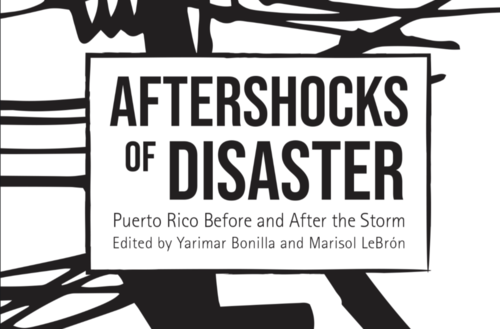
Aftershocks of Disaster – Book Launch
Aftershocks of Disaster is an in-depth look at Puerto Rico in the aftermath of Hurricane Maria and the preexisting crisis that conditioned this historic disaster. The concept of “aftershocks” is used in the context of earthquakes to describe the jolts felt after the initial quake, but no disaster is a singular event. Aftershocks of Disaster examines the lasting effects of Hurricane Maria, not just the effects of the wind or the rain, but delving into what followed: state failure, social abandonment, capitalization on human misery, and the collective trauma produced by the botched response.
Aftershock’s editors Marisol LeBrón and Yarimar Bonilla will be in conversation with Alana Casanova-Burgess of WNYC’s On the Media.
Marisol LeBrón is an interdisciplinary scholar specializing in race, policing, and political activism in Puerto Rico and U.S. communities of color. She is an Assistant Professor of Mexican American and Latina/o Studies at the University of Texas at Austin. She is the author of Policing Life and Death: Race, Violence, and Resistance in Puerto Rico and, along with Yarimar Bonilla, co-editor of Aftershocks of Disaster: Puerto Rico Before and After the Storm. LeBrón is also one of the co-creators of the Puerto Rico Syllabus, a digital resource for understanding the Puerto Rican debt crisis.
Yarimar Bonilla is a political anthropologist specializing in questions of sovereignty, citizenship, and race across the Americas. She has tracked these issues across a broad range of sites and practices such as postcolonial politics in the French Caribbean, the role of digital protest in the Black Lives Matter movement, the politics of the Trump presidency, the Puerto Rican statehood movement, and her current research -for which she was named a 2018 Carnegie Fellow- on the political, economic, and social aftermath of Hurricane Maria in Puerto Rico.
Alana Casanova-Burgess is a radio journalist and producer for The WNYC show On The Media. She has conducted on the ground in Puerto Rico for The WNYC newsroom, culminating in a special episode of On the Media devoted to Hurricane Maria in 2017 and coverage of the 2019 #RickyRenuncia protests. Her work has been recognized by The ONA, PRNDI, and The Council on Contemporary Families. She is a bilingual native New Yorker with roots in The Dominican Republic, Puerto Rico, and the CUNY Graduate School of Journalism.
Event Recap
On September 18, The Latinx Project hosted our first official event of the Fall semester: a book launch for Yarimar Bonilla and Marisol LeBrón, co-editors of the new anthology, Aftershocks of Disaster: Puerto Rico Before and the Storm. They were joined by Alana Casanova-Burgess of WNYC’s On the Media, who opened the conversation with a comment on the varied content found in the book’s five sections, which includes contributions from writers, scholars, journalists, poets, visual artists, photographers, and theater performers.
Marisol LeBrón quickly underscored the importance of “thinking about alternatives” with regard to the issues confronting Puerto Rico, from scholarly critique to artistic expression. “Art and the work of activists became super important for trying to think through those alternatives,” added LeBrón. Creativity and resistance, moreover, go toward showcasing the experiences of Puerto Ricans on and off the Island in the two years after Hurricane Maria. Though as Yarimar Bonilla pointed out and the subtitle of the book suggests, “aftershocks,” which are associated with earthquakes rather than hurricanes, is still a concept open to interpretation, making the anthology relevant in numerous contexts, such as the ongoing debt crisis and the colonial systems in place before the storm.
Next, Casanova-Burgess shifted the conversation to climate change by framing her questions around the global climate strike set to begin on Friday, September 20—the two-year anniversary of Hurricane Maria’s landfall in Puerto Rico. Bonilla explained that this year feels like the first real anniversary for Puerto Ricans given the circumstances one year after the storm. In terms of climate change, the discussion revolved around problematizing terms like disaster, crisis, and catastrophe. “To what extent is there a new crisis, or is this a realization of the crisis that Puerto Rico has been experiencing for a long time?” asked Bonilla, as the conversation delved into the coloniality of disaster.
Resilience, another word to gain prominence in the Puerto Rican lexicon according to Bonilla, must also be thought of critically. “Resilience is not what we should be asking of people in a disastrous situation,” remarked Casanova-Burgess. LeBrón then added that the discourse of resiliency abdicates the state of responsibility and creates an excuse for populations to withstand violence—a dynamic that is central to neoliberalism. Meanwhile, disaster capitalism becomes a development model parallel to this bureaucratic neglect.
On the other hand, as Bonilla noted, the recognition of individual and collective capacity played a key role in the protests that removed Governor Ricardo Rosselló from power. More importantly, this shift in consciousness sets the stage for not just a return to normalcy in Puerto Rico, but the potential for radical change.
What comes next, however, remains to be seen. “This is a moment of possibility, which is also a moment of uncertainty,” observed Bonilla. LeBrón, in turn, warned of the tensions between the status quo and emerging social movements: “Moments of upheaval break this open for everyone—those on the ground fighting for change, and for the elites to re-grab power.” Regardless, the first step appears to be the asambleas that have been hosted across the Island and throughout the mainland diaspora. “The people really needed to see that they could come together and achieve a goal; now is the messy part,” concluded Bonilla.
During the Question and Answer portion of the event, the conversation lingered on the question of identity, specifically the decentralization of whiteness in favor of uplifting Afro-Puertorriqueñidad. This inclusion, especially among the youth, also extends to feminist and queer identity, which was central to the protests against Governor Rosselló. Perreo combativo, a subject explored by LeBrón and Verónica Dávila, was an example of this inclusive, youthful organizing principle in Puerto Rico. *The perreo section of the program was unfortunately cut for time.
Above all, a sense of urgency, said Bonilla, helped shape the Aftershocks anthology and the many issues brought up in conversation. “I remain hopeful, which is new to me,” says Bonilla.

El Zine: Contemporary Underground Archives (Opening)
El Zine: Contemporary Underground Archives, curated by Barbara Calderón, is an exhibition including monographs, ethnographies of low brow scenes, fiction, art books, health advice for POC (People of Color), educational and historical texts, and artist catalogs.
In the last ten years, we have seen “DIY” (Do It Yourself) publishers expand tenfold with a new zine fest popping up every month in cities worldwide. The incorporation of zine tents in art book fairs such as Printed Matter in New York City and Los Angeles exemplify mere fragments of the creative output that thrive outside of mainstream publishing platforms.
This generation has re-embraced the analog and “DIY” mentality of content creation by rejecting traditional processes of editorial gatekeeping– a mechanism that keeps the most interesting creators (ie. Latinx folks) at bay. This exposition gave a sense of the ideas that percolate in underground art, literature, and punk scenes across the country with work that is rare, obscure, and distinct.
The curated selection of DIY content included monographs, ethnographies of low brow scenes, fiction, art books, health advice for POC (People of Color), educational and historical texts, and artist catalogs. Most publishers exhibited in el zine operate outside of mainstream publishing and produce their zines independently with little editorial oversight.
The exhibition included works distinguished for their informality and rarity of their work. There was a freedom to explore any and all topics that have aspects of “taboo” -magic, marijuana, sex work- and personal content that may not exist in other media arenas -urban landscapes, ghost stories, Queer and Trans perspectives, Ancestral healing practices-. These zines offered an exclusive eye into the anxieties, interests, and ideas powering this generation’s cultural production.
Featuring
Julia Arredondo, Valerie Bower, Brown n Proud Press, Mayra Cortez, Suzy Exposito, Muchacha Fanzine, Luz Magdaleno Flores, Sayuri Gomez, Alfonso Gonzalez Jr., Cristobal Guerra, Yeiry Guevara, Juan Madrid, Luisa Martinez, Mujeres de Maize, Tania Negrete, Ezequiel Olvera, Dave Ortega, Kyle Richardson, Shellyne Rodriguez, Julieta Salgado, Tamara Santibañez, Stephanie Segura, STEFA, Margot Terc, Reuben Torres, Tahnee Udero, and Alvaro Zavala.
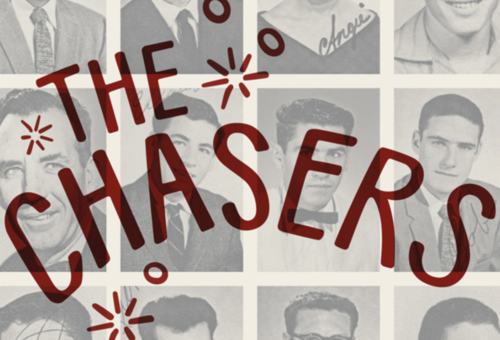
Chasers Book Release by Renato Rosaldo
We hosted a book launch for Renato Rosaldo’s -Professor Emeritus at New York Univesity in Anthropology and Social and Cultural Analysis- newest prose poetry collection.
The Chasers focuses on a group of twelve Mexican American Tucson High School friends known as the Chasers as they grew up, graduated, and fell out of touch. Derived from interviews with the Chasers and three other friends conducted after their fiftieth high school reunion, Rosaldo’s poems present a chorus of distinct voices and perspectives that convey the realities of Chicano life on the borderlands from the 1950s to the present.
Alyshia Galvez presented and was accompanied by musician Gustavo Aguilar.
Galvez is a cultural and medical anthropologist with specializations in the areas of immigration and migration, citizenship and rights, Mexico and Mexican populations, Latin America, and Latin@s in the United States, trade, health, health disparities, reproduction, chronic disease, religion, and performance.
Aguilar is an Assistant Arts Professor of Collaborative Arts. He has a Bachelor of Arts from Corpus Christi State University, a Master of Music from The University of Akron, a Master of Fine Arts from California Institute of the Arts, and a Doctorate of Musical Arts in Contemporary Performance from the University of California, San Diego.
This event was free and organized by Pamela Calla, co-sponsored by The Anthropology Department and CLACS, The Center for Latin American and Caribbean Studies.








